Life at Hitachi Vantara
Inspiring the Future of Good.
Many companies talk about the importance of doing good. Thanks to the efforts and support of our people worldwide, we’ve taken action.
Thank you for your interest in Hitachi Vantara. Someone from our sales team will be in touch with you shortly.
Many companies talk about the importance of doing good. Thanks to the efforts and support of our people worldwide, we’ve taken action.
Our team share their experiences on working in the world of Product Enablement.

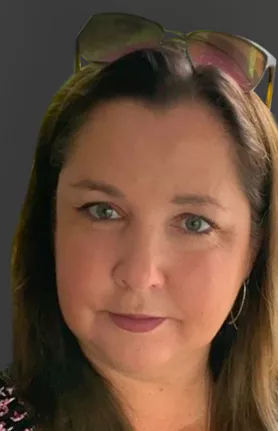
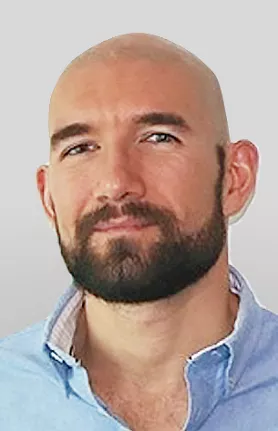





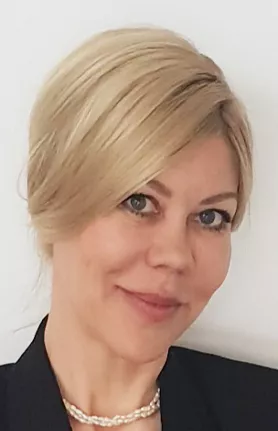
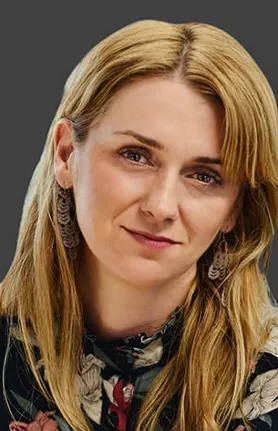
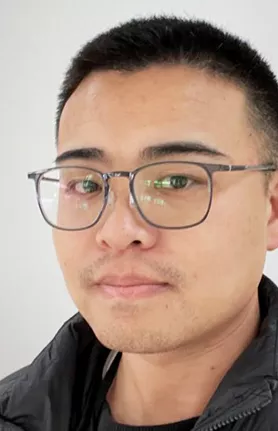
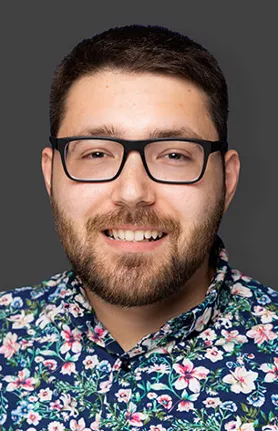

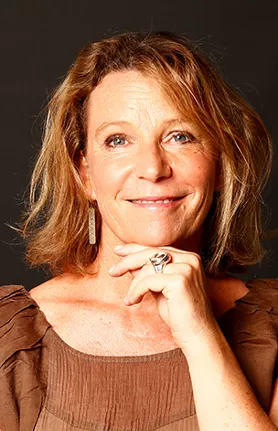

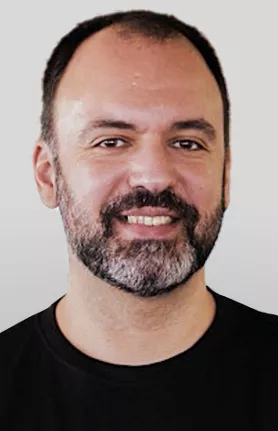
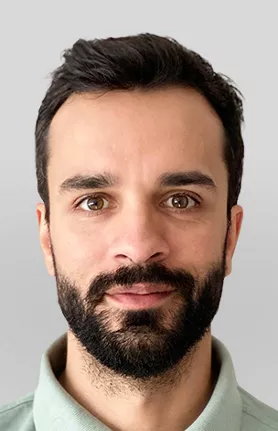


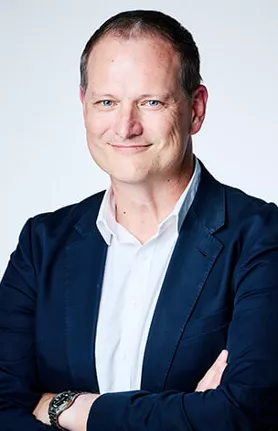
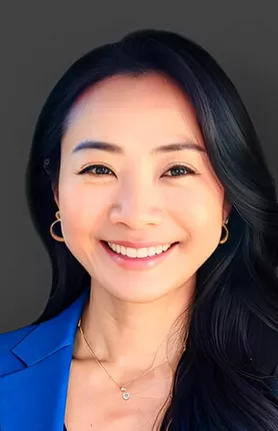
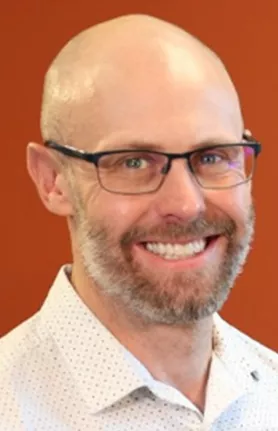
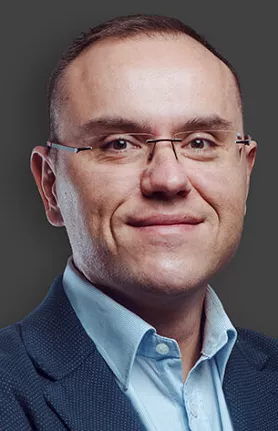



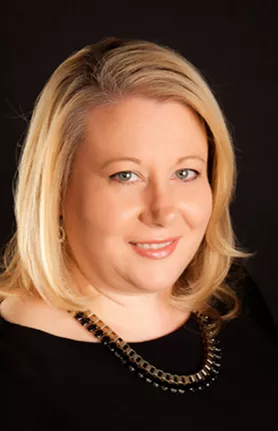
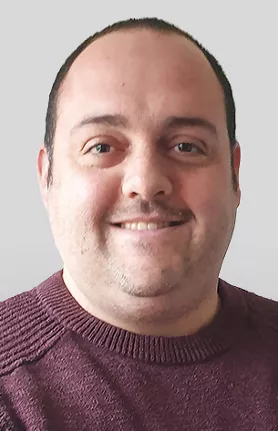
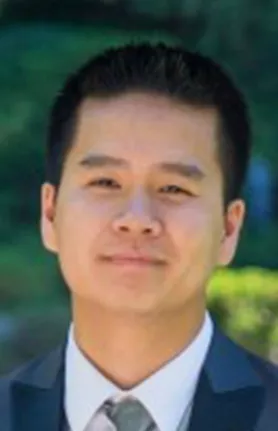
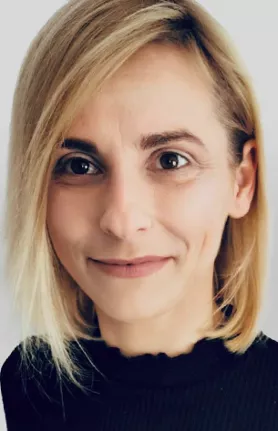

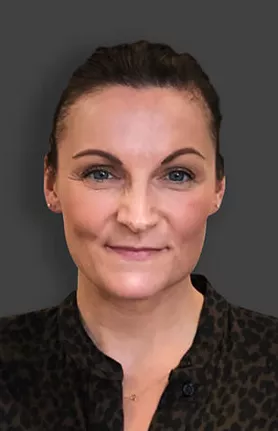
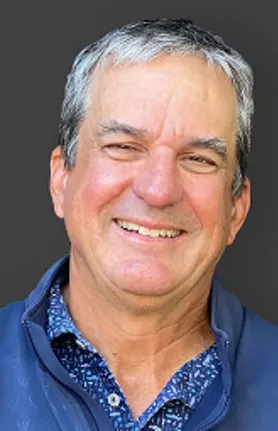

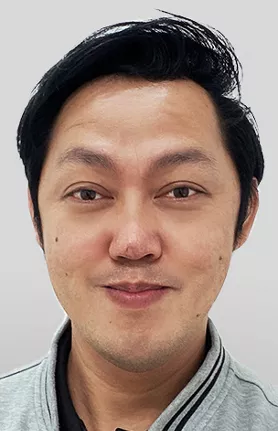









































































































































































































































































































































































































































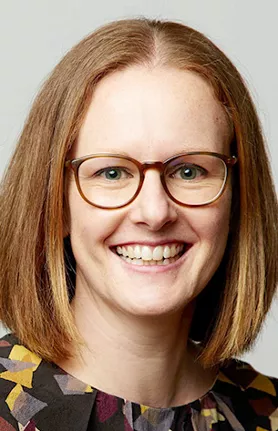
































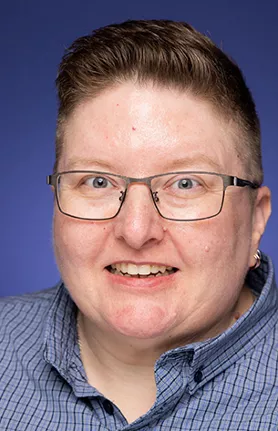




































































































































































































“I am a Brazilian immigrant, I came to Portugal four years ago to study and when I finished my college degree, Hitachi Vantara welcomed me with arms wide open.”
“Now we have a team of MHFA’s at Hitachi Vantara to support our people on their mental wellbeing journey and raise awareness.”
“The company culture, the work-life balance and the respect between team-mates was also a bonus for me, and I feel these are the keys to a great working environment.”
“Design thinking helps solves genuine problems, but the real impact is what it can do for our customers.”
“Hitachi Vantara’s commitment to sustainability and proactiveness to support clients as a social responsibility makes me excited about the future.”
“I have found a passion in giving back to others and helping people find their voice.”
“I feel fortunate to work in a respectful work environment, which is professional yet has an informal vibe.”
“Having the opportunity to collaborate with other designers is great. The insights and knowledge gained have been invaluable.”
“Enjoy what you are doing and never give up, doesn’t matter how difficult and challenging it gets.”
“It is an awesome feeling when you find the perfect role for you, and I find it amazing that HV is able and willing to let its employees grow through different roles.”
“Hitachi is one of the largest companies in the world not only in the IT business but also other areas.”
“If an organization does not approach mental health with kindness and understanding, then I do not wish to be a part of it.”
“At Hitachi Vantara, every occasion calls for some celebration! Our 15th anniversary of presence in Poland was a huge event and over 300 employees decided to come together for a celebratory event!”
“I know I can’t succeed alone, so having a good team and working as one really drives me forward.”
“I take pride in the fact that at Hitachi Vantara, we’re engaging in impactful sustainability projects and are focused on doing good for the planet.”
“Creative freedom is one of the key reasons why working at Hitachi Vantara is very rewarding.”
“Hitachi is one of the largest companies in the world, not only in the IT business but also in automotive, construction machinery, rail and other sectors.”
“The best thing about working in HV is its importance on values, which makes it one of a kind.”
“The best way is to lead with an example, so that other women know it is possible. I would say guide, mentor, and help them with anything they need.”
“My time in the Navy shaped the leader I am today, to understand the importance of people. No matter how high tech, an organization is always about people.”
“Empathy and curiosity are keys to navigating delicate situations with calm and grace.”
“When I heard that there was a Mental Health First Aid initiative at Hitachi Vantara, I immediately wanted to get involved.”
“I consider career successes of people I work with as my greatest achievements. I feel honoured that leaders I work with understand our role in the organization the same way I do.”
“What makes Hitachi Vantara unique to me is the inspiration and innovative spirit that we all have — it’s one of our key values.”
“I know I can’t succeed alone, so having a good team and working as one really drives me forward.”
“From Childhood Curiosity to Real-world Impact, My Journey into Procurement”
“From below down under to the top of the game.”
“Since I joined HV, I’m able to be in touch with the latest cutting-edge technologies available in the market.”
“I appreciate the diversity of the people at Hitachi Vantara. Even in my small, immediate team, an assorted array of expertise, age, gender, culture, and location is represented.”
“Hitachi Vantara offers great work-life balance, and flexible working arrangements — from remote to hybrid. If you are interested in comprehensive and competitive perks and benefits, you will find it all here.”
“If you don’t like change, you’ll like irrelevance even less.”
“When a new woman employee joins, I want to make sure she has a community and the support to succeed from day one.”
“My greatest honor has been empowering people to seize opportunities, do things differently and dare to succeed.”
“Where you are today is not where you’ll be tomorrow”
“I’ve worked in other companies before, but I can say that Hitachi really cares for its people and it is a great place to work.”
“Empathy is important. And if you found your purpose that motivates you, I think that's a huge success.”
“I joined Hitachi and 15-years later, even when I don’t always feel confident, I seize every opportunity, even if it’s outside my comfort zone.”
“Hitachi's values align with mine. This gives me a sense of fulfilment, being in a community of like-minded people.”
“I am a Brazilian immigrant, I came to Portugal four years ago to study and when I finished my college degree, Hitachi Vantara welcomed me with arms wide open.”
“Now we have a team of MHFA’s at Hitachi Vantara to support our people on their mental wellbeing journey and raise awareness.”
“The company culture, the work-life balance and the respect between team-mates was also a bonus for me, and I feel these are the keys to a great working environment.”
“Design thinking helps solves genuine problems, but the real impact is what it can do for our customers.”
“Hitachi Vantara’s commitment to sustainability and proactiveness to support clients as a social responsibility makes me excited about the future.”
“I have found a passion in giving back to others and helping people find their voice.”
“I feel fortunate to work in a respectful work environment, which is professional yet has an informal vibe.”
“Having the opportunity to collaborate with other designers is great. The insights and knowledge gained have been invaluable.”
“Enjoy what you are doing and never give up, doesn’t matter how difficult and challenging it gets.”
“It is an awesome feeling when you find the perfect role for you, and I find it amazing that HV is able and willing to let its employees grow through different roles.”
“Hitachi is one of the largest companies in the world not only in the IT business but also other areas.”
“If an organization does not approach mental health with kindness and understanding, then I do not wish to be a part of it.”
“At Hitachi Vantara, every occasion calls for some celebration! Our 15th anniversary of presence in Poland was a huge event and over 300 employees decided to come together for a celebratory event!”
“I know I can’t succeed alone, so having a good team and working as one really drives me forward.”
“I take pride in the fact that at Hitachi Vantara, we’re engaging in impactful sustainability projects and are focused on doing good for the planet.”
“Creative freedom is one of the key reasons why working at Hitachi Vantara is very rewarding.”
“Hitachi is one of the largest companies in the world, not only in the IT business but also in automotive, construction machinery, rail and other sectors.”
“The best thing about working in HV is its importance on values, which makes it one of a kind.”
“The best way is to lead with an example, so that other women know it is possible. I would say guide, mentor, and help them with anything they need.”
“My time in the Navy shaped the leader I am today, to understand the importance of people. No matter how high tech, an organization is always about people.”
“Empathy and curiosity are keys to navigating delicate situations with calm and grace.”
“When I heard that there was a Mental Health First Aid initiative at Hitachi Vantara, I immediately wanted to get involved.”
“I consider career successes of people I work with as my greatest achievements. I feel honoured that leaders I work with understand our role in the organization the same way I do.”
“What makes Hitachi Vantara unique to me is the inspiration and innovative spirit that we all have — it’s one of our key values.”
“I know I can’t succeed alone, so having a good team and working as one really drives me forward.”
“From Childhood Curiosity to Real-world Impact, My Journey into Procurement”
“From below down under to the top of the game.”
“Since I joined HV, I’m able to be in touch with the latest cutting-edge technologies available in the market.”
“I appreciate the diversity of the people at Hitachi Vantara. Even in my small, immediate team, an assorted array of expertise, age, gender, culture, and location is represented.”
“Hitachi Vantara offers great work-life balance, and flexible working arrangements — from remote to hybrid. If you are interested in comprehensive and competitive perks and benefits, you will find it all here.”
“If you don’t like change, you’ll like irrelevance even less.”
“When a new woman employee joins, I want to make sure she has a community and the support to succeed from day one.”
“My greatest honor has been empowering people to seize opportunities, do things differently and dare to succeed.”
“Where you are today is not where you’ll be tomorrow”
“I’ve worked in other companies before, but I can say that Hitachi really cares for its people and it is a great place to work.”
“Empathy is important. And if you found your purpose that motivates you, I think that's a huge success.”
“I joined Hitachi and 15-years later, even when I don’t always feel confident, I seize every opportunity, even if it’s outside my comfort zone.”
“Hitachi's values align with mine. This gives me a sense of fulfilment, being in a community of like-minded people.”
“I am a Brazilian immigrant, I came to Portugal four years ago to study and when I finished my college degree, Hitachi Vantara welcomed me with arms wide open.”
“Now we have a team of MHFA’s at Hitachi Vantara to support our people on their mental wellbeing journey and raise awareness.”
“The company culture, the work-life balance and the respect between team-mates was also a bonus for me, and I feel these are the keys to a great working environment.”
“Design thinking helps solves genuine problems, but the real impact is what it can do for our customers.”
“Hitachi Vantara’s commitment to sustainability and proactiveness to support clients as a social responsibility makes me excited about the future.”
“I have found a passion in giving back to others and helping people find their voice.”
“I feel fortunate to work in a respectful work environment, which is professional yet has an informal vibe.”
“Having the opportunity to collaborate with other designers is great. The insights and knowledge gained have been invaluable.”
“Enjoy what you are doing and never give up, doesn’t matter how difficult and challenging it gets.”
“It is an awesome feeling when you find the perfect role for you, and I find it amazing that HV is able and willing to let its employees grow through different roles.”
“Hitachi is one of the largest companies in the world not only in the IT business but also other areas.”
“If an organization does not approach mental health with kindness and understanding, then I do not wish to be a part of it.”
“At Hitachi Vantara, every occasion calls for some celebration! Our 15th anniversary of presence in Poland was a huge event and over 300 employees decided to come together for a celebratory event!”
“I know I can’t succeed alone, so having a good team and working as one really drives me forward.”
“I take pride in the fact that at Hitachi Vantara, we’re engaging in impactful sustainability projects and are focused on doing good for the planet.”
“Creative freedom is one of the key reasons why working at Hitachi Vantara is very rewarding.”
“Hitachi is one of the largest companies in the world, not only in the IT business but also in automotive, construction machinery, rail and other sectors.”
“The best thing about working in HV is its importance on values, which makes it one of a kind.”
“The best way is to lead with an example, so that other women know it is possible. I would say guide, mentor, and help them with anything they need.”
“My time in the Navy shaped the leader I am today, to understand the importance of people. No matter how high tech, an organization is always about people.”
“Empathy and curiosity are keys to navigating delicate situations with calm and grace.”
“When I heard that there was a Mental Health First Aid initiative at Hitachi Vantara, I immediately wanted to get involved.”
“I consider career successes of people I work with as my greatest achievements. I feel honoured that leaders I work with understand our role in the organization the same way I do.”
“What makes Hitachi Vantara unique to me is the inspiration and innovative spirit that we all have — it’s one of our key values.”
“I know I can’t succeed alone, so having a good team and working as one really drives me forward.”
“From Childhood Curiosity to Real-world Impact, My Journey into Procurement”
“From below down under to the top of the game.”
“Since I joined HV, I’m able to be in touch with the latest cutting-edge technologies available in the market.”
“I appreciate the diversity of the people at Hitachi Vantara. Even in my small, immediate team, an assorted array of expertise, age, gender, culture, and location is represented.”
“Hitachi Vantara offers great work-life balance, and flexible working arrangements — from remote to hybrid. If you are interested in comprehensive and competitive perks and benefits, you will find it all here.”
“If you don’t like change, you’ll like irrelevance even less.”
“When a new woman employee joins, I want to make sure she has a community and the support to succeed from day one.”
“My greatest honor has been empowering people to seize opportunities, do things differently and dare to succeed.”
“Where you are today is not where you’ll be tomorrow”
“I’ve worked in other companies before, but I can say that Hitachi really cares for its people and it is a great place to work.”
“Empathy is important. And if you found your purpose that motivates you, I think that's a huge success.”
“I joined Hitachi and 15-years later, even when I don’t always feel confident, I seize every opportunity, even if it’s outside my comfort zone.”
“Hitachi's values align with mine. This gives me a sense of fulfilment, being in a community of like-minded people.”
“I am a Brazilian immigrant, I came to Portugal four years ago to study and when I finished my college degree, Hitachi Vantara welcomed me with arms wide open.”
“Now we have a team of MHFA’s at Hitachi Vantara to support our people on their mental wellbeing journey and raise awareness.”
“The company culture, the work-life balance and the respect between team-mates was also a bonus for me, and I feel these are the keys to a great working environment.”
“Design thinking helps solves genuine problems, but the real impact is what it can do for our customers.”
“Hitachi Vantara’s commitment to sustainability and proactiveness to support clients as a social responsibility makes me excited about the future.”
“I have found a passion in giving back to others and helping people find their voice.”
“I feel fortunate to work in a respectful work environment, which is professional yet has an informal vibe.”
“Having the opportunity to collaborate with other designers is great. The insights and knowledge gained have been invaluable.”
“Enjoy what you are doing and never give up, doesn’t matter how difficult and challenging it gets.”
“It is an awesome feeling when you find the perfect role for you, and I find it amazing that HV is able and willing to let its employees grow through different roles.”
“Hitachi is one of the largest companies in the world not only in the IT business but also other areas.”
“If an organization does not approach mental health with kindness and understanding, then I do not wish to be a part of it.”
“At Hitachi Vantara, every occasion calls for some celebration! Our 15th anniversary of presence in Poland was a huge event and over 300 employees decided to come together for a celebratory event!”
“I know I can’t succeed alone, so having a good team and working as one really drives me forward.”
“I take pride in the fact that at Hitachi Vantara, we’re engaging in impactful sustainability projects and are focused on doing good for the planet.”
“Creative freedom is one of the key reasons why working at Hitachi Vantara is very rewarding.”
“Hitachi is one of the largest companies in the world, not only in the IT business but also in automotive, construction machinery, rail and other sectors.”
“The best thing about working in HV is its importance on values, which makes it one of a kind.”
“The best way is to lead with an example, so that other women know it is possible. I would say guide, mentor, and help them with anything they need.”
“My time in the Navy shaped the leader I am today, to understand the importance of people. No matter how high tech, an organization is always about people.”
“Empathy and curiosity are keys to navigating delicate situations with calm and grace.”
“When I heard that there was a Mental Health First Aid initiative at Hitachi Vantara, I immediately wanted to get involved.”
“I consider career successes of people I work with as my greatest achievements. I feel honoured that leaders I work with understand our role in the organization the same way I do.”
“What makes Hitachi Vantara unique to me is the inspiration and innovative spirit that we all have — it’s one of our key values.”
“I know I can’t succeed alone, so having a good team and working as one really drives me forward.”
“From Childhood Curiosity to Real-world Impact, My Journey into Procurement”
“From below down under to the top of the game.”
“Since I joined HV, I’m able to be in touch with the latest cutting-edge technologies available in the market.”
“I appreciate the diversity of the people at Hitachi Vantara. Even in my small, immediate team, an assorted array of expertise, age, gender, culture, and location is represented.”
“Hitachi Vantara offers great work-life balance, and flexible working arrangements — from remote to hybrid. If you are interested in comprehensive and competitive perks and benefits, you will find it all here.”
“If you don’t like change, you’ll like irrelevance even less.”
“When a new woman employee joins, I want to make sure she has a community and the support to succeed from day one.”
“My greatest honor has been empowering people to seize opportunities, do things differently and dare to succeed.”
“Where you are today is not where you’ll be tomorrow”
“I’ve worked in other companies before, but I can say that Hitachi really cares for its people and it is a great place to work.”
“Empathy is important. And if you found your purpose that motivates you, I think that's a huge success.”
“I joined Hitachi and 15-years later, even when I don’t always feel confident, I seize every opportunity, even if it’s outside my comfort zone.”
“Hitachi's values align with mine. This gives me a sense of fulfilment, being in a community of like-minded people.”
“If you don’t like change, you’ll like irrelevance even less.”
“I have found a passion in giving back to others and helping people find their voice.”
“Having the opportunity to collaborate with other designers is great. The insights and knowledge gained have been invaluable.”
“It is an awesome feeling when you find the perfect role for you, and I find it amazing that HV is able and willing to let its employees grow through different roles.”
“If an organization does not approach mental health with kindness and understanding, then I do not wish to be a part of it.”
“The best way is to lead with an example, so that other women know it is possible. I would say guide, mentor, and help them with anything they need.”
“My time in the Navy shaped the leader I am today, to understand the importance of people. No matter how high tech, an organization is always about people.”
“I consider career successes of people I work with as my greatest achievements. I feel honoured that leaders I work with understand our role in the organization the same way I do.”
“Design thinking helps solves genuine problems, but the real impact is what it can do for our customers.”
“Hitachi Vantara’s commitment to sustainability and proactiveness to support clients as a social responsibility makes me excited about the future.”
“I feel fortunate to work in a respectful work environment, which is professional yet has an informal vibe.”
“Enjoy what you are doing and never give up, doesn’t matter how difficult and challenging it gets.”
“When I heard that there was a Mental Health First Aid initiative at Hitachi Vantara, I immediately wanted to get involved.”
“I consider career successes of people I work with as my greatest achievements. I feel honoured that leaders I work with understand our role in the organization the same way I do.”
“Design thinking helps solves genuine problems, but the real impact is what it can do for our customers.”
“If you don’t like change, you’ll like irrelevance even less.”
“I have found a passion in giving back to others and helping people find their voice.”
“I feel fortunate to work in a respectful work environment, which is professional yet has an informal vibe.”
“Having the opportunity to collaborate with other designers is great. The insights and knowledge gained have been invaluable.”
“Enjoy what you are doing and never give up, doesn’t matter how difficult and challenging it gets.”
“It is an awesome feeling when you find the perfect role for you, and I find it amazing that HV is able and willing to let its employees grow through different roles.”
“If an organization does not approach mental health with kindness and understanding, then I do not wish to be a part of it.”
“The best way is to lead with an example, so that other women know it is possible. I would say guide, mentor, and help them with anything they need.”
“My time in the Navy shaped the leader I am today, to understand the importance of people. No matter how high tech, an organization is always about people.”
“When I heard that there was a Mental Health First Aid initiative at Hitachi Vantara, I immediately wanted to get involved.”
“Hitachi Vantara’s commitment to sustainability and proactiveness to support clients as a social responsibility makes me excited about the future.”
“I am a Brazilian immigrant, I came to Portugal four years ago to study and when I finished my college degree, Hitachi Vantara welcomed me with arms wide open.”
“What makes Hitachi Vantara unique to me is the inspiration and innovative spirit that we all have — it’s one of our key values.”
“I know I can’t succeed alone, so having a good team and working as one really drives me forward.”
"There will always be testing times in life but if you apply these intentions, it will bring you the best outcomes."
“Now we have a team of MHFA’s at Hitachi Vantara to support our people on their mental wellbeing journey and raise awareness.”
“The company culture, the work-life balance and the respect between team-mates was also a bonus for me, and I feel these are the keys to a great working environment.”
“From below down under to the top of the game.”
“Since I joined HV, I’m able to be in touch with the latest cutting-edge technologies available in the market.”
“I appreciate the diversity of the people at Hitachi Vantara. Even in my small, immediate team, an assorted array of expertise, age, gender, culture, and location is represented.”
“Hitachi Vantara offers great work-life balance, and flexible working arrangements — from remote to hybrid. If you are interested in comprehensive and competitive perks and benefits, you will find it all here.”
“Hitachi is one of the largest companies in the world not only in the IT business but also other areas.”
“When a new woman employee joins, I want to make sure she has a community and the support to succeed from day one.”
“At Hitachi Vantara, every occasion calls for some celebration! Our 15th anniversary of presence in Poland was a huge event and over 300 employees decided to come together for a celebratory event!”
“I know I can’t succeed alone, so having a good team and working as one really drives me forward.”
“I take pride in the fact that at Hitachi Vantara, we’re engaging in impactful sustainability projects and are focused on doing good for the planet.”
Creative freedom is one of the key reasons why working at Hitachi Vantara is very rewarding.
“My greatest honor has been empowering people to seize opportunities, do things differently and dare to succeed.”
“Hitachi is one of the largest companies in the world, not only in the IT business but also in automotive, construction machinery, rail and other sectors.”
“The best thing about working in HV is its importance on values, which makes it one of a kind.”
“Where you are today is not where you’ll be tomorrow”
“I’ve worked in other companies before, but I can say that Hitachi really cares for its people and it is a great place to work.”
“Empathy and curiosity are keys to navigating delicate situations with calm and grace.”
“Empathy is important. And if you found your purpose that motivates you, I think that's a huge success.”
“I joined Hitachi and 15-years later, even when I don’t always feel confident, I seize every opportunity, even if it’s outside my comfort zone.”
“Hitachi's values align with mine. This gives me a sense of fulfilment, being in a community of like-minded people.”
“I am a Brazilian immigrant, I came to Portugal four years ago to study and when I finished my college degree, Hitachi Vantara welcomed me with arms wide open.”
“At Hitachi Vantara, every occasion calls for some celebration! Our 15th anniversary of presence in Poland was a huge event and over 300 employees decided to come together for a celebratory event!”
“I take pride in the fact that at Hitachi Vantara, we’re engaging in impactful sustainability projects and are focused on doing good for the planet.”
“The best thing about working in HV is its importance on values, which makes it one of a kind.”
“The company culture, the work-life balance and the respect between team-mates was also a bonus for me, and I feel these are the keys to a great working environment.”
“What makes Hitachi Vantara unique to me is the inspiration and innovative spirit that we all have — it’s one of our key values.”
“I know I can’t succeed alone, so having a good team and working as one really drives me forward.”
“Now we have a team of MHFA’s at Hitachi Vantara to support our people on their mental wellbeing journey and raise awareness.”
“From below down under to the top of the game.”
“Since I joined HV, I’m able to be in touch with the latest cutting-edge technologies available in the market.”
“I appreciate the diversity of the people at Hitachi Vantara. Even in my small, immediate team, an assorted array of expertise, age, gender, culture, and location is represented.”
“Hitachi Vantara offers great work-life balance, and flexible working arrangements — from remote to hybrid. If you are interested in comprehensive and competitive perks and benefits, you will find it all here.”
“Hitachi is one of the largest companies in the world not only in the IT business but also other areas.”
“I know I can’t succeed alone, so having a good team and working as one really drives me forward.”
Creative freedom is one of the key reasons why working at Hitachi Vantara is very rewarding.
“My greatest honor has been empowering people to seize opportunities, do things differently and dare to succeed.”
“Hitachi is one of the largest companies in the world, not only in the IT business but also in automotive, construction machinery, rail and other sectors.”
“Where you are today is not where you’ll be tomorrow”
“I’ve worked in other companies before, but I can say that Hitachi really cares for its people and it is a great place to work.”
“Empathy and curiosity are keys to navigating delicate situations with calm and grace.”
“Empathy is important. And if you found your purpose that motivates you, I think that's a huge success.”
“Hitachi's values align with mine. This gives me a sense of fulfilment, being in a community of like-minded people.”
"There will always be testing times in life but if you apply these intentions, it will bring you the best outcomes."
“I joined Hitachi and 15-years later, even when I don’t always feel confident, I seize every opportunity, even if it’s outside my comfort zone.”
“When a new woman employee joins, I want to make sure she has a community and the support to succeed from day one.”
“I am a Brazilian immigrant, I came to Portugal four years ago to study and when I finished my college degree, Hitachi Vantara welcomed me with arms wide open.”
“What makes Hitachi Vantara unique to me is the inspiration and innovative spirit that we all have — it’s one of our key values.”
“I know I can’t succeed alone, so having a good team and working as one really drives me forward.”
"There will always be testing times in life but if you apply these intentions, it will bring you the best outcomes."
“Now we have a team of MHFA’s at Hitachi Vantara to support our people on their mental wellbeing journey and raise awareness.”
“The company culture, the work-life balance and the respect between team-mates was also a bonus for me, and I feel these are the keys to a great working environment.”
“From below down under to the top of the game.”
“Since I joined HV, I’m able to be in touch with the latest cutting-edge technologies available in the market.”
“Design thinking helps solves genuine problems, but the real impact is what it can do for our customers.”
“I appreciate the diversity of the people at Hitachi Vantara. Even in my small, immediate team, an assorted array of expertise, age, gender, culture, and location is represented.”
“Hitachi Vantara’s commitment to sustainability and proactiveness to support clients as a social responsibility makes me excited about the future.”
“Hitachi Vantara offers great work-life balance, and flexible working arrangements — from remote to hybrid. If you are interested in comprehensive and competitive perks and benefits, you will find it all here.”
“If you don’t like change, you’ll like irrelevance even less.”
“I have found a passion in giving back to others and helping people find their voice.”
“I feel fortunate to work in a respectful work environment, which is professional yet has an informal vibe.”
“Having the opportunity to collaborate with other designers is great. The insights and knowledge gained have been invaluable.”
“Enjoy what you are doing and never give up, doesn’t matter how difficult and challenging it gets.”
“It is an awesome feeling when you find the perfect role for you, and I find it amazing that HV is able and willing to let its employees grow through different roles.”
“Hitachi is one of the largest companies in the world not only in the IT business but also other areas.”
“If an organization does not approach mental health with kindness and understanding, then I do not wish to be a part of it.”
“When a new woman employee joins, I want to make sure she has a community and the support to succeed from day one.”
“At Hitachi Vantara, every occasion calls for some celebration! Our 15th anniversary of presence in Poland was a huge event and over 300 employees decided to come together for a celebratory event!”
“I know I can’t succeed alone, so having a good team and working as one really drives me forward.”
“I take pride in the fact that at Hitachi Vantara, we’re engaging in impactful sustainability projects and are focused on doing good for the planet.”
Creative freedom is one of the key reasons why working at Hitachi Vantara is very rewarding.
“My greatest honor has been empowering people to seize opportunities, do things differently and dare to succeed.”
“Hitachi is one of the largest companies in the world, not only in the IT business but also in automotive, construction machinery, rail and other sectors.”
“The best thing about working in HV is its importance on values, which makes it one of a kind.”
“The best way is to lead with an example, so that other women know it is possible. I would say guide, mentor, and help them with anything they need.”
“Where you are today is not where you’ll be tomorrow”
“I’ve worked in other companies before, but I can say that Hitachi really cares for its people and it is a great place to work.”
“My time in the Navy shaped the leader I am today, to understand the importance of people. No matter how high tech, an organization is always about people.”
“Empathy and curiosity are keys to navigating delicate situations with calm and grace.”
“When I heard that there was a Mental Health First Aid initiative at Hitachi Vantara, I immediately wanted to get involved.”
“Empathy is important. And if you found your purpose that motivates you, I think that's a huge success.”
“I joined Hitachi and 15-years later, even when I don’t always feel confident, I seize every opportunity, even if it’s outside my comfort zone.”
“Hitachi's values align with mine. This gives me a sense of fulfilment, being in a community of like-minded people.”
“I consider career successes of people I work with as my greatest achievements. I feel honoured that leaders I work with understand our role in the organization the same way I do.”
“I am a Brazilian immigrant, I came to Portugal four years ago to study and when I finished my college degree, Hitachi Vantara welcomed me with arms wide open.”
“What makes Hitachi Vantara unique to me is the inspiration and innovative spirit that we all have — it’s one of our key values.”
“I know I can’t succeed alone, so having a good team and working as one really drives me forward.”
“Now we have a team of MHFA’s at Hitachi Vantara to support our people on their mental wellbeing journey and raise awareness.”
“The company culture, the work-life balance and the respect between team-mates was also a bonus for me, and I feel these are the keys to a great working environment.”
“From below down under to the top of the game.”
“Since I joined HV, I’m able to be in touch with the latest cutting-edge technologies available in the market.”
“Design thinking helps solves genuine problems, but the real impact is what it can do for our customers.”
“I appreciate the diversity of the people at Hitachi Vantara. Even in my small, immediate team, an assorted array of expertise, age, gender, culture, and location is represented.”
“Hitachi Vantara’s commitment to sustainability and proactiveness to support clients as a social responsibility makes me excited about the future.”
“Hitachi Vantara offers great work-life balance, and flexible working arrangements — from remote to hybrid. If you are interested in comprehensive and competitive perks and benefits, you will find it all here.”
“If you don’t like change, you’ll like irrelevance even less.”
“I have found a passion in giving back to others and helping people find their voice.”
“I feel fortunate to work in a respectful work environment, which is professional yet has an informal vibe.”
“Having the opportunity to collaborate with other designers is great. The insights and knowledge gained have been invaluable.”
“Enjoy what you are doing and never give up, doesn’t matter how difficult and challenging it gets.”
“It is an awesome feeling when you find the perfect role for you, and I find it amazing that HV is able and willing to let its employees grow through different roles.”
“Hitachi is one of the largest companies in the world not only in the IT business but also other areas.”
“If an organization does not approach mental health with kindness and understanding, then I do not wish to be a part of it.”
“When a new woman employee joins, I want to make sure she has a community and the support to succeed from day one.”
“At Hitachi Vantara, every occasion calls for some celebration! Our 15th anniversary of presence in Poland was a huge event and over 300 employees decided to come together for a celebratory event!”
“I know I can’t succeed alone, so having a good team and working as one really drives me forward.”
“I take pride in the fact that at Hitachi Vantara, we’re engaging in impactful sustainability projects and are focused on doing good for the planet.”
Creative freedom is one of the key reasons why working at Hitachi Vantara is very rewarding.
“My greatest honor has been empowering people to seize opportunities, do things differently and dare to succeed.”
“Hitachi is one of the largest companies in the world, not only in the IT business but also in automotive, construction machinery, rail and other sectors.”
“The best thing about working in HV is its importance on values, which makes it one of a kind.”
“The best way is to lead with an example, so that other women know it is possible. I would say guide, mentor, and help them with anything they need.”
“Where you are today is not where you’ll be tomorrow”
“I’ve worked in other companies before, but I can say that Hitachi really cares for its people and it is a great place to work.”
“My time in the Navy shaped the leader I am today, to understand the importance of people. No matter how high tech, an organization is always about people.”
“Empathy and curiosity are keys to navigating delicate situations with calm and grace.”
“When I heard that there was a Mental Health First Aid initiative at Hitachi Vantara, I immediately wanted to get involved.”
“Empathy is important. And if you found your purpose that motivates you, I think that's a huge success.”
“I joined Hitachi and 15-years later, even when I don’t always feel confident, I seize every opportunity, even if it’s outside my comfort zone.”
“Hitachi's values align with mine. This gives me a sense of fulfilment, being in a community of like-minded people.”
“I consider career successes of people I work with as my greatest achievements. I feel honoured that leaders I work with understand our role in the organization the same way I do.”
"There will always be testing times in life but if you apply these intentions, it will bring you the best outcomes."
“If you don’t like change, you’ll like irrelevance even less.”
“It is an awesome feeling when you find the perfect role for you, and I find it amazing that HV is able and willing to let its employees grow through different roles.”
“My time in the Navy shaped the leader I am today, to understand the importance of people. No matter how high tech, an organization is always about people.”
“I consider career successes of people I work with as my greatest achievements. I feel honoured that leaders I work with understand our role in the organization the same way I do.”
“I am a Brazilian immigrant, I came to Portugal four years ago to study and when I finished my college degree, Hitachi Vantara welcomed me with arms wide open.”
“What makes Hitachi Vantara unique to me is the inspiration and innovative spirit that we all have — it’s one of our key values.”
“I know I can’t succeed alone, so having a good team and working as one really drives me forward.”
"There will always be testing times in life but if you apply these intentions, it will bring you the best outcomes."
“Now we have a team of MHFA’s at Hitachi Vantara to support our people on their mental wellbeing journey and raise awareness.”
“The company culture, the work-life balance and the respect between team-mates was also a bonus for me, and I feel these are the keys to a great working environment.”
“From below down under to the top of the game.”
“Since I joined HV, I’m able to be in touch with the latest cutting-edge technologies available in the market.”
“Design thinking helps solves genuine problems, but the real impact is what it can do for our customers.”
“I appreciate the diversity of the people at Hitachi Vantara. Even in my small, immediate team, an assorted array of expertise, age, gender, culture, and location is represented.”
“Hitachi Vantara’s commitment to sustainability and proactiveness to support clients as a social responsibility makes me excited about the future.”
“Hitachi Vantara offers great work-life balance, and flexible working arrangements — from remote to hybrid. If you are interested in comprehensive and competitive perks and benefits, you will find it all here.”
“I have found a passion in giving back to others and helping people find their voice.”
“I feel fortunate to work in a respectful work environment, which is professional yet has an informal vibe.”
“Having the opportunity to collaborate with other designers is great. The insights and knowledge gained have been invaluable.”
“Enjoy what you are doing and never give up, doesn’t matter how difficult and challenging it gets.”
“Hitachi is one of the largest companies in the world not only in the IT business but also other areas.”
“If an organization does not approach mental health with kindness and understanding, then I do not wish to be a part of it.”
“When a new woman employee joins, I want to make sure she has a community and the support to succeed from day one.”
“At Hitachi Vantara, every occasion calls for some celebration! Our 15th anniversary of presence in Poland was a huge event and over 300 employees decided to come together for a celebratory event!”
“I know I can’t succeed alone, so having a good team and working as one really drives me forward.”
“I take pride in the fact that at Hitachi Vantara, we’re engaging in impactful sustainability projects and are focused on doing good for the planet.”
Creative freedom is one of the key reasons why working at Hitachi Vantara is very rewarding.
“My greatest honor has been empowering people to seize opportunities, do things differently and dare to succeed.”
“Hitachi is one of the largest companies in the world, not only in the IT business but also in automotive, construction machinery, rail and other sectors.”
“The best thing about working in HV is its importance on values, which makes it one of a kind.”
“The best way is to lead with an example, so that other women know it is possible. I would say guide, mentor, and help them with anything they need.”
“Where you are today is not where you’ll be tomorrow”
“I’ve worked in other companies before, but I can say that Hitachi really cares for its people and it is a great place to work.”
“Empathy and curiosity are keys to navigating delicate situations with calm and grace.”
“When I heard that there was a Mental Health First Aid initiative at Hitachi Vantara, I immediately wanted to get involved.”
“Empathy is important. And if you found your purpose that motivates you, I think that's a huge success.”
“I joined Hitachi and 15-years later, even when I don’t always feel confident, I seize every opportunity, even if it’s outside my comfort zone.”
“Hitachi's values align with mine. This gives me a sense of fulfilment, being in a community of like-minded people.”
“I am a Brazilian immigrant, I came to Portugal four years ago to study and when I finished my college degree, Hitachi Vantara welcomed me with arms wide open.”
“What makes Hitachi Vantara unique to me is the inspiration and innovative spirit that we all have — it’s one of our key values.”
“I know I can’t succeed alone, so having a good team and working as one really drives me forward.”
"There will always be testing times in life but if you apply these intentions, it will bring you the best outcomes."
“Now we have a team of MHFA’s at Hitachi Vantara to support our people on their mental wellbeing journey and raise awareness.”
“The company culture, the work-life balance and the respect between team-mates was also a bonus for me, and I feel these are the keys to a great working environment.”
“From below down under to the top of the game.”
“Since I joined HV, I’m able to be in touch with the latest cutting-edge technologies available in the market.”
“Design thinking helps solves genuine problems, but the real impact is what it can do for our customers.”
“I appreciate the diversity of the people at Hitachi Vantara. Even in my small, immediate team, an assorted array of expertise, age, gender, culture, and location is represented.”
“Hitachi Vantara’s commitment to sustainability and proactiveness to support clients as a social responsibility makes me excited about the future.”
“Hitachi Vantara offers great work-life balance, and flexible working arrangements — from remote to hybrid. If you are interested in comprehensive and competitive perks and benefits, you will find it all here.”
“I have found a passion in giving back to others and helping people find their voice.”
“I feel fortunate to work in a respectful work environment, which is professional yet has an informal vibe.”
“Having the opportunity to collaborate with other designers is great. The insights and knowledge gained have been invaluable.”
“Enjoy what you are doing and never give up, doesn’t matter how difficult and challenging it gets.”
“Hitachi is one of the largest companies in the world not only in the IT business but also other areas.”
“If an organization does not approach mental health with kindness and understanding, then I do not wish to be a part of it.”
“When a new woman employee joins, I want to make sure she has a community and the support to succeed from day one.”
“At Hitachi Vantara, every occasion calls for some celebration! Our 15th anniversary of presence in Poland was a huge event and over 300 employees decided to come together for a celebratory event!”
“I know I can’t succeed alone, so having a good team and working as one really drives me forward.”
“I take pride in the fact that at Hitachi Vantara, we’re engaging in impactful sustainability projects and are focused on doing good for the planet.”
Creative freedom is one of the key reasons why working at Hitachi Vantara is very rewarding.
“My greatest honor has been empowering people to seize opportunities, do things differently and dare to succeed.”
“Hitachi is one of the largest companies in the world, not only in the IT business but also in automotive, construction machinery, rail and other sectors.”
“The best thing about working in HV is its importance on values, which makes it one of a kind.”
“The best way is to lead with an example, so that other women know it is possible. I would say guide, mentor, and help them with anything they need.”
“Where you are today is not where you’ll be tomorrow”
“I’ve worked in other companies before, but I can say that Hitachi really cares for its people and it is a great place to work.”
“Empathy and curiosity are keys to navigating delicate situations with calm and grace.”
“When I heard that there was a Mental Health First Aid initiative at Hitachi Vantara, I immediately wanted to get involved.”
“Empathy is important. And if you found your purpose that motivates you, I think that's a huge success.”
“I joined Hitachi and 15-years later, even when I don’t always feel confident, I seize every opportunity, even if it’s outside my comfort zone.”
“Hitachi's values align with mine. This gives me a sense of fulfilment, being in a community of like-minded people.”
“If you don’t like change, you’ll like irrelevance even less.”
“It is an awesome feeling when you find the perfect role for you, and I find it amazing that HV is able and willing to let its employees grow through different roles.”
“My time in the Navy shaped the leader I am today, to understand the importance of people. No matter how high tech, an organization is always about people.”
“I consider career successes of people I work with as my greatest achievements. I feel honoured that leaders I work with understand our role in the organization the same way I do.”
“I am a Brazilian immigrant, I came to Portugal four years ago to study and when I finished my college degree, Hitachi Vantara welcomed me with arms wide open.”
“What makes Hitachi Vantara unique to me is the inspiration and innovative spirit that we all have — it’s one of our key values.”
“I know I can’t succeed alone, so having a good team and working as one really drives me forward.”
"There will always be testing times in life but if you apply these intentions, it will bring you the best outcomes."
“Now we have a team of MHFA’s at Hitachi Vantara to support our people on their mental wellbeing journey and raise awareness.”
“The company culture, the work-life balance and the respect between team-mates was also a bonus for me, and I feel these are the keys to a great working environment.”
“From below down under to the top of the game.”
“Since I joined HV, I’m able to be in touch with the latest cutting-edge technologies available in the market.”
“Design thinking helps solves genuine problems, but the real impact is what it can do for our customers.”
“I appreciate the diversity of the people at Hitachi Vantara. Even in my small, immediate team, an assorted array of expertise, age, gender, culture, and location is represented.”
“Hitachi Vantara’s commitment to sustainability and proactiveness to support clients as a social responsibility makes me excited about the future.”
“Hitachi Vantara offers great work-life balance, and flexible working arrangements — from remote to hybrid. If you are interested in comprehensive and competitive perks and benefits, you will find it all here.”
“I have found a passion in giving back to others and helping people find their voice.”
“I feel fortunate to work in a respectful work environment, which is professional yet has an informal vibe.”
“Having the opportunity to collaborate with other designers is great. The insights and knowledge gained have been invaluable.”
“Enjoy what you are doing and never give up, doesn’t matter how difficult and challenging it gets.”
“Hitachi is one of the largest companies in the world not only in the IT business but also other areas.”
“If an organization does not approach mental health with kindness and understanding, then I do not wish to be a part of it.”
“When a new woman employee joins, I want to make sure she has a community and the support to succeed from day one.”
“At Hitachi Vantara, every occasion calls for some celebration! Our 15th anniversary of presence in Poland was a huge event and over 300 employees decided to come together for a celebratory event!”
“I know I can’t succeed alone, so having a good team and working as one really drives me forward.”
“I take pride in the fact that at Hitachi Vantara, we’re engaging in impactful sustainability projects and are focused on doing good for the planet.”
Creative freedom is one of the key reasons why working at Hitachi Vantara is very rewarding.
“My greatest honor has been empowering people to seize opportunities, do things differently and dare to succeed.”
“Hitachi is one of the largest companies in the world, not only in the IT business but also in automotive, construction machinery, rail and other sectors.”
“The best thing about working in HV is its importance on values, which makes it one of a kind.”
“The best way is to lead with an example, so that other women know it is possible. I would say guide, mentor, and help them with anything they need.”
“Where you are today is not where you’ll be tomorrow”
“I’ve worked in other companies before, but I can say that Hitachi really cares for its people and it is a great place to work.”
“Empathy and curiosity are keys to navigating delicate situations with calm and grace.”
“When I heard that there was a Mental Health First Aid initiative at Hitachi Vantara, I immediately wanted to get involved.”
“Empathy is important. And if you found your purpose that motivates you, I think that's a huge success.”
“I joined Hitachi and 15-years later, even when I don’t always feel confident, I seize every opportunity, even if it’s outside my comfort zone.”
“Hitachi's values align with mine. This gives me a sense of fulfilment, being in a community of like-minded people.”
“If you don’t like change, you’ll like irrelevance even less.”
“It is an awesome feeling when you find the perfect role for you, and I find it amazing that HV is able and willing to let its employees grow through different roles.”
“My time in the Navy shaped the leader I am today, to understand the importance of people. No matter how high tech, an organization is always about people.”
“I consider career successes of people I work with as my greatest achievements. I feel honoured that leaders I work with understand our role in the organization the same way I do.”
“I am a Brazilian immigrant, I came to Portugal four years ago to study and when I finished my college degree, Hitachi Vantara welcomed me with arms wide open.”
“What makes Hitachi Vantara unique to me is the inspiration and innovative spirit that we all have — it’s one of our key values.”
“I know I can’t succeed alone, so having a good team and working as one really drives me forward.”
"There will always be testing times in life but if you apply these intentions, it will bring you the best outcomes."
“Now we have a team of MHFA’s at Hitachi Vantara to support our people on their mental wellbeing journey and raise awareness.”
“The company culture, the work-life balance and the respect between team-mates was also a bonus for me, and I feel these are the keys to a great working environment.”
“From below down under to the top of the game.”
“Since I joined HV, I’m able to be in touch with the latest cutting-edge technologies available in the market.”
“Design thinking helps solves genuine problems, but the real impact is what it can do for our customers.”
“I appreciate the diversity of the people at Hitachi Vantara. Even in my small, immediate team, an assorted array of expertise, age, gender, culture, and location is represented.”
“Hitachi Vantara’s commitment to sustainability and proactiveness to support clients as a social responsibility makes me excited about the future.”
“Hitachi Vantara offers great work-life balance, and flexible working arrangements — from remote to hybrid. If you are interested in comprehensive and competitive perks and benefits, you will find it all here.”
“I feel fortunate to work in a respectful work environment, which is professional yet has an informal vibe.”
“Having the opportunity to collaborate with other designers is great. The insights and knowledge gained have been invaluable.”
“Enjoy what you are doing and never give up, doesn’t matter how difficult and challenging it gets.”
“Hitachi is one of the largest companies in the world not only in the IT business but also other areas.”
“When a new woman employee joins, I want to make sure she has a community and the support to succeed from day one.”
“At Hitachi Vantara, every occasion calls for some celebration! Our 15th anniversary of presence in Poland was a huge event and over 300 employees decided to come together for a celebratory event!”
“I know I can’t succeed alone, so having a good team and working as one really drives me forward.”
“I take pride in the fact that at Hitachi Vantara, we’re engaging in impactful sustainability projects and are focused on doing good for the planet.”
Creative freedom is one of the key reasons why working at Hitachi Vantara is very rewarding.
“My greatest honor has been empowering people to seize opportunities, do things differently and dare to succeed.”
“Hitachi is one of the largest companies in the world, not only in the IT business but also in automotive, construction machinery, rail and other sectors.”
“The best thing about working in HV is its importance on values, which makes it one of a kind.”
“The best way is to lead with an example, so that other women know it is possible. I would say guide, mentor, and help them with anything they need.”
“Where you are today is not where you’ll be tomorrow”
“I’ve worked in other companies before, but I can say that Hitachi really cares for its people and it is a great place to work.”
“Empathy and curiosity are keys to navigating delicate situations with calm and grace.”
“When I heard that there was a Mental Health First Aid initiative at Hitachi Vantara, I immediately wanted to get involved.”
“Empathy is important. And if you found your purpose that motivates you, I think that's a huge success.”
“I joined Hitachi and 15-years later, even when I don’t always feel confident, I seize every opportunity, even if it’s outside my comfort zone.”
“Hitachi's values align with mine. This gives me a sense of fulfilment, being in a community of like-minded people.”
“If you don’t like change, you’ll like irrelevance even less.”
“I have found a passion in giving back to others and helping people find their voice.”
“It is an awesome feeling when you find the perfect role for you, and I find it amazing that HV is able and willing to let its employees grow through different roles.”
“If an organization does not approach mental health with kindness and understanding, then I do not wish to be a part of it.”
“My time in the Navy shaped the leader I am today, to understand the importance of people. No matter how high tech, an organization is always about people.”
“I consider career successes of people I work with as my greatest achievements. I feel honoured that leaders I work with understand our role in the organization the same way I do.”
“I am a Brazilian immigrant, I came to Portugal four years ago to study and when I finished my college degree, Hitachi Vantara welcomed me with arms wide open.”
“What makes Hitachi Vantara unique to me is the inspiration and innovative spirit that we all have — it’s one of our key values.”
“I know I can’t succeed alone, so having a good team and working as one really drives me forward.”
“Now we have a team of MHFA’s at Hitachi Vantara to support our people on their mental wellbeing journey and raise awareness.”
“I stay at Hitachi Vantara for the same reasons I joined ten years ago – talented people, great team spirit, variety, a focus on doing good for society as well as our clients, and continued opportunities to grow and develop as an individual.”
“The company culture, the work-life balance and the respect between team-mates was also a bonus for me, and I feel these are the keys to a great working environment.”
“From below down under to the top of the game.”
“Since I joined HV, I’m able to be in touch with the latest cutting-edge technologies available in the market.”
“Design thinking helps solves genuine problems, but the real impact is what it can do for our customers.”
“I appreciate the diversity of the people at Hitachi Vantara. Even in my small, immediate team, an assorted array of expertise, age, gender, culture, and location is represented.”
“Hitachi Vantara’s commitment to sustainability and proactiveness to support clients as a social responsibility makes me excited about the future.”
“Hitachi Vantara offers great work-life balance, and flexible working arrangements — from remote to hybrid. If you are interested in comprehensive and competitive perks and benefits, you will find it all here.”
“If you don’t like change, you’ll like irrelevance even less.”
“I have found a passion in giving back to others and helping people find their voice.”
“I feel fortunate to work in a respectful work environment, which is professional yet has an informal vibe.”
“Having the opportunity to collaborate with other designers is great. The insights and knowledge gained have been invaluable.”
“Enjoy what you are doing and never give up, doesn’t matter how difficult and challenging it gets.”
“It is an awesome feeling when you find the perfect role for you, and I find it amazing that HV is able and willing to let its employees grow through different roles.”
“Hitachi is one of the largest companies in the world not only in the IT business but also other areas.”
“If an organization does not approach mental health with kindness and understanding, then I do not wish to be a part of it.”
“At Hitachi Vantara, every occasion calls for some celebration! Our 15th anniversary of presence in Poland was a huge event and over 300 employees decided to come together for a celebratory event!”
“I know I can’t succeed alone, so having a good team and working as one really drives me forward.”
“I take pride in the fact that at Hitachi Vantara, we’re engaging in impactful sustainability projects and are focused on doing good for the planet.”
Creative freedom is one of the key reasons why working at Hitachi Vantara is very rewarding.
“My greatest honor has been empowering people to seize opportunities, do things differently and dare to succeed.”
“Hitachi is one of the largest companies in the world, not only in the IT business but also in automotive, construction machinery, rail and other sectors.”
“The best thing about working in HV is its importance on values, which makes it one of a kind.”
“The best way is to lead with an example, so that other women know it is possible. I would say guide, mentor, and help them with anything they need.”
“Where you are today is not where you’ll be tomorrow”
“I’ve worked in other companies before, but I can say that Hitachi really cares for its people and it is a great place to work.”
“My time in the Navy shaped the leader I am today, to understand the importance of people. No matter how high tech, an organization is always about people.”
“Empathy and curiosity are keys to navigating delicate situations with calm and grace.”
“When I heard that there was a Mental Health First Aid initiative at Hitachi Vantara, I immediately wanted to get involved.”
“Empathy is important. And if you found your purpose that motivates you, I think that's a huge success.”
“I joined Hitachi and 15-years later, even when I don’t always feel confident, I seize every opportunity, even if it’s outside my comfort zone.”
“Hitachi's values align with mine. This gives me a sense of fulfilment, being in a community of like-minded people.”
“I consider career successes of people I work with as my greatest achievements. I feel honoured that leaders I work with understand our role in the organization the same way I do.”
“I’ve learned that when a person feels safe enough to ‘come out’, to live their lives authentically, they are much happier and more productive.”
"There will always be testing times in life but if you apply these intentions, it will bring you the best outcomes."
“When a new woman employee joins, I want to make sure she has a community and the support to succeed from day one.”
“I am a Brazilian immigrant, I came to Portugal four years ago to study and when I finished my college degree, Hitachi Vantara welcomed me with arms wide open.”
“What makes Hitachi Vantara unique to me is the inspiration and innovative spirit that we all have — it’s one of our key values.”
“I know I can’t succeed alone, so having a good team and working as one really drives me forward.”
"There will always be testing times in life but if you apply these intentions, it will bring you the best outcomes."
“Now we have a team of MHFA’s at Hitachi Vantara to support our people on their mental wellbeing journey and raise awareness.”
“The company culture, the work-life balance and the respect between team-mates was also a bonus for me, and I feel these are the keys to a great working environment.”
“From below down under to the top of the game.”
“Since I joined HV, I’m able to be in touch with the latest cutting-edge technologies available in the market.”
“Design thinking helps solves genuine problems, but the real impact is what it can do for our customers.”
“I appreciate the diversity of the people at Hitachi Vantara. Even in my small, immediate team, an assorted array of expertise, age, gender, culture, and location is represented.”
“Hitachi Vantara’s commitment to sustainability and proactiveness to support clients as a social responsibility makes me excited about the future.”
“Hitachi Vantara offers great work-life balance, and flexible working arrangements — from remote to hybrid. If you are interested in comprehensive and competitive perks and benefits, you will find it all here.”
“If you don’t like change, you’ll like irrelevance even less.”
“I have found a passion in giving back to others and helping people find their voice.”
“I feel fortunate to work in a respectful work environment, which is professional yet has an informal vibe.”
“Having the opportunity to collaborate with other designers is great. The insights and knowledge gained have been invaluable.”
“Enjoy what you are doing and never give up, doesn’t matter how difficult and challenging it gets.”
“Hitachi is one of the largest companies in the world not only in the IT business but also other areas.”
“If an organization does not approach mental health with kindness and understanding, then I do not wish to be a part of it.”
“When a new woman employee joins, I want to make sure she has a community and the support to succeed from day one.”
“At Hitachi Vantara, every occasion calls for some celebration! Our 15th anniversary of presence in Poland was a huge event and over 300 employees decided to come together for a celebratory event!”
“I know I can’t succeed alone, so having a good team and working as one really drives me forward.”
“I take pride in the fact that at Hitachi Vantara, we’re engaging in impactful sustainability projects and are focused on doing good for the planet.”
Creative freedom is one of the key reasons why working at Hitachi Vantara is very rewarding.
“My greatest honor has been empowering people to seize opportunities, do things differently and dare to succeed.”
“Hitachi is one of the largest companies in the world, not only in the IT business but also in automotive, construction machinery, rail and other sectors.”
“The best thing about working in HV is its importance on values, which makes it one of a kind.”
“The best way is to lead with an example, so that other women know it is possible. I would say guide, mentor, and help them with anything they need.”
“Where you are today is not where you’ll be tomorrow”
“I’ve worked in other companies before, but I can say that Hitachi really cares for its people and it is a great place to work.”
“My time in the Navy shaped the leader I am today, to understand the importance of people. No matter how high tech, an organization is always about people.”
“Empathy and curiosity are keys to navigating delicate situations with calm and grace.”
“When I heard that there was a Mental Health First Aid initiative at Hitachi Vantara, I immediately wanted to get involved.”
“Empathy is important. And if you found your purpose that motivates you, I think that's a huge success.”
“I joined Hitachi and 15-years later, even when I don’t always feel confident, I seize every opportunity, even if it’s outside my comfort zone.”
“Hitachi's values align with mine. This gives me a sense of fulfilment, being in a community of like-minded people.”
“It is an awesome feeling when you find the perfect role for you, and I find it amazing that HV is able and willing to let its employees grow through different roles.”
“I consider career successes of people I work with as my greatest achievements. I feel honoured that leaders I work with understand our role in the organization the same way I do.”
“I am a Brazilian immigrant, I came to Portugal four years ago to study and when I finished my college degree, Hitachi Vantara welcomed me with arms wide open.”
“What makes Hitachi Vantara unique to me is the inspiration and innovative spirit that we all have — it’s one of our key values.”
“I know I can’t succeed alone, so having a good team and working as one really drives me forward.”
"There will always be testing times in life but if you apply these intentions, it will bring you the best outcomes."
“Now we have a team of MHFA’s at Hitachi Vantara to support our people on their mental wellbeing journey and raise awareness.”
“The company culture, the work-life balance and the respect between team-mates was also a bonus for me, and I feel these are the keys to a great working environment.”
“From below down under to the top of the game.”
“Since I joined HV, I’m able to be in touch with the latest cutting-edge technologies available in the market.”
“Design thinking helps solves genuine problems, but the real impact is what it can do for our customers.”
“I appreciate the diversity of the people at Hitachi Vantara. Even in my small, immediate team, an assorted array of expertise, age, gender, culture, and location is represented.”
“Hitachi Vantara’s commitment to sustainability and proactiveness to support clients as a social responsibility makes me excited about the future.”
“Hitachi Vantara offers great work-life balance, and flexible working arrangements — from remote to hybrid. If you are interested in comprehensive and competitive perks and benefits, you will find it all here.”
“If you don’t like change, you’ll like irrelevance even less.”
“I have found a passion in giving back to others and helping people find their voice.”
“I feel fortunate to work in a respectful work environment, which is professional yet has an informal vibe.”
“Having the opportunity to collaborate with other designers is great. The insights and knowledge gained have been invaluable.”
“Enjoy what you are doing and never give up, doesn’t matter how difficult and challenging it gets.”
“Hitachi is one of the largest companies in the world not only in the IT business but also other areas.”
“If an organization does not approach mental health with kindness and understanding, then I do not wish to be a part of it.”
“When a new woman employee joins, I want to make sure she has a community and the support to succeed from day one.”
“At Hitachi Vantara, every occasion calls for some celebration! Our 15th anniversary of presence in Poland was a huge event and over 300 employees decided to come together for a celebratory event!”
“I know I can’t succeed alone, so having a good team and working as one really drives me forward.”
“I take pride in the fact that at Hitachi Vantara, we’re engaging in impactful sustainability projects and are focused on doing good for the planet.”
Creative freedom is one of the key reasons why working at Hitachi Vantara is very rewarding.
“My greatest honor has been empowering people to seize opportunities, do things differently and dare to succeed.”
“Hitachi is one of the largest companies in the world, not only in the IT business but also in automotive, construction machinery, rail and other sectors.”
“The best thing about working in HV is its importance on values, which makes it one of a kind.”
“The best way is to lead with an example, so that other women know it is possible. I would say guide, mentor, and help them with anything they need.”
“Where you are today is not where you’ll be tomorrow”
“I’ve worked in other companies before, but I can say that Hitachi really cares for its people and it is a great place to work.”
“My time in the Navy shaped the leader I am today, to understand the importance of people. No matter how high tech, an organization is always about people.”
“Empathy and curiosity are keys to navigating delicate situations with calm and grace.”
“When I heard that there was a Mental Health First Aid initiative at Hitachi Vantara, I immediately wanted to get involved.”
“Empathy is important. And if you found your purpose that motivates you, I think that's a huge success.”
“I joined Hitachi and 15-years later, even when I don’t always feel confident, I seize every opportunity, even if it’s outside my comfort zone.”
“Hitachi's values align with mine. This gives me a sense of fulfilment, being in a community of like-minded people.”
“It is an awesome feeling when you find the perfect role for you, and I find it amazing that HV is able and willing to let its employees grow through different roles.”
“I consider career successes of people I work with as my greatest achievements. I feel honoured that leaders I work with understand our role in the organization the same way I do.”
“I’ve learned that when a person feels safe enough to ‘come out’, to live their lives authentically, they are much happier and more productive.”
“I am a Brazilian immigrant, I came to Portugal four years ago to study and when I finished my college degree, Hitachi Vantara welcomed me with arms wide open.”
“What makes Hitachi Vantara unique to me is the inspiration and innovative spirit that we all have — it’s one of our key values.”
“I know I can’t succeed alone, so having a good team and working as one really drives me forward.”
"There will always be testing times in life but if you apply these intentions, it will bring you the best outcomes."
“Now we have a team of MHFA’s at Hitachi Vantara to support our people on their mental wellbeing journey and raise awareness.”
“I stay at Hitachi Vantara for the same reasons I joined ten years ago – talented people, great team spirit, variety, a focus on doing good for society as well as our clients, and continued opportunities to grow and develop as an individual.”
“The company culture, the work-life balance and the respect between team-mates was also a bonus for me, and I feel these are the keys to a great working environment.”
“From below down under to the top of the game.”
“Since I joined HV, I’m able to be in touch with the latest cutting-edge technologies available in the market.”
“Design thinking helps solves genuine problems, but the real impact is what it can do for our customers.”
“I appreciate the diversity of the people at Hitachi Vantara. Even in my small, immediate team, an assorted array of expertise, age, gender, culture, and location is represented.”
“Hitachi Vantara’s commitment to sustainability and proactiveness to support clients as a social responsibility makes me excited about the future.”
“Hitachi Vantara offers great work-life balance, and flexible working arrangements — from remote to hybrid. If you are interested in comprehensive and competitive perks and benefits, you will find it all here.”
“If you don’t like change, you’ll like irrelevance even less.”
“I have found a passion in giving back to others and helping people find their voice.”
“I feel fortunate to work in a respectful work environment, which is professional yet has an informal vibe.”
“Having the opportunity to collaborate with other designers is great. The insights and knowledge gained have been invaluable.”
“Enjoy what you are doing and never give up, doesn’t matter how difficult and challenging it gets.”
“Hitachi is one of the largest companies in the world not only in the IT business but also other areas.”
“If an organization does not approach mental health with kindness and understanding, then I do not wish to be a part of it.”
“When a new woman employee joins, I want to make sure she has a community and the support to succeed from day one.”
“At Hitachi Vantara, every occasion calls for some celebration! Our 15th anniversary of presence in Poland was a huge event and over 300 employees decided to come together for a celebratory event!”
“I know I can’t succeed alone, so having a good team and working as one really drives me forward.”
“I take pride in the fact that at Hitachi Vantara, we’re engaging in impactful sustainability projects and are focused on doing good for the planet.”
Creative freedom is one of the key reasons why working at Hitachi Vantara is very rewarding.
“My greatest honor has been empowering people to seize opportunities, do things differently and dare to succeed.”
“Hitachi is one of the largest companies in the world, not only in the IT business but also in automotive, construction machinery, rail and other sectors.”
“The best thing about working in HV is its importance on values, which makes it one of a kind.”
“The best way is to lead with an example, so that other women know it is possible. I would say guide, mentor, and help them with anything they need.”
“Where you are today is not where you’ll be tomorrow”
“I’ve worked in other companies before, but I can say that Hitachi really cares for its people and it is a great place to work.”
“Empathy and curiosity are keys to navigating delicate situations with calm and grace.”
“When I heard that there was a Mental Health First Aid initiative at Hitachi Vantara, I immediately wanted to get involved.”
“Empathy is important. And if you found your purpose that motivates you, I think that's a huge success.”
“I joined Hitachi and 15-years later, even when I don’t always feel confident, I seize every opportunity, even if it’s outside my comfort zone.”
“Hitachi's values align with mine. This gives me a sense of fulfilment, being in a community of like-minded people.”
“It is an awesome feeling when you find the perfect role for you, and I find it amazing that HV is able and willing to let its employees grow through different roles.”
“My time in the Navy shaped the leader I am today, to understand the importance of people. No matter how high tech, an organization is always about people.”
“I consider career successes of people I work with as my greatest achievements. I feel honoured that leaders I work with understand our role in the organization the same way I do.”
“I am a Brazilian immigrant, I came to Portugal four years ago to study and when I finished my college degree, Hitachi Vantara welcomed me with arms wide open.”
“What makes Hitachi Vantara unique to me is the inspiration and innovative spirit that we all have — it’s one of our key values.”
“I know I can’t succeed alone, so having a good team and working as one really drives me forward.”
“From Childhood Curiosity to Real-world Impact, My Journey into Procurement”
“Now we have a team of MHFA’s at Hitachi Vantara to support our people on their mental wellbeing journey and raise awareness.”
“I stay at Hitachi Vantara for the same reasons I joined ten years ago – talented people; great team spirit; variety; a focus on doing good for society as well as our clients; and continued opportunities to grow and develop as an individual.”
“The company culture, the work-life balance and the respect between team-mates was also a bonus for me, and I feel these are the keys to a great working environment.”
“From below down under to the top of the game.”
“Since I joined HV, I’m able to be in touch with the latest cutting-edge technologies available in the market.”
“Design thinking helps solves genuine problems, but the real impact is what it can do for our customers.”
“I appreciate the diversity of the people at Hitachi Vantara. Even in my small, immediate team, an assorted array of expertise, age, gender, culture, and location is represented.”
“Hitachi Vantara’s commitment to sustainability and proactiveness to support clients as a social responsibility makes me excited about the future.”
“Hitachi Vantara offers great work-life balance, and flexible working arrangements — from remote to hybrid. If you are interested in comprehensive and competitive perks and benefits, you will find it all here.”
“If you don’t like change, you’ll like irrelevance even less.”
“I have found a passion in giving back to others and helping people find their voice.”
“I feel fortunate to work in a respectful work environment, which is professional yet has an informal vibe.”
“Having the opportunity to collaborate with other designers is great. The insights and knowledge gained have been invaluable.”
“Enjoy what you are doing and never give up, doesn’t matter how difficult and challenging it gets.”
“It is an awesome feeling when you find the perfect role for you, and I find it amazing that HV is able and willing to let its employees grow through different roles.”
“Hitachi is one of the largest companies in the world not only in the IT business but also other areas.”
“If an organization does not approach mental health with kindness and understanding, then I do not wish to be a part of it.”
“When a new woman employee joins, I want to make sure she has a community and the support to succeed from day one.”
“At Hitachi Vantara, every occasion calls for some celebration! Our 15th anniversary of presence in Poland was a huge event and over 300 employees decided to come together for a celebratory event!”
“I know I can’t succeed alone, so having a good team and working as one really drives me forward.”
“I take pride in the fact that at Hitachi Vantara, we’re engaging in impactful sustainability projects and are focused on doing good for the planet.”
“Creative freedom is one of the key reasons why working at Hitachi Vantara is very rewarding.”
“My greatest honor has been empowering people to seize opportunities, do things differently and dare to succeed.”
“Hitachi is one of the largest companies in the world, not only in the IT business but also in automotive, construction machinery, rail and other sectors.”
“The best thing about working in HV is its importance on values, which makes it one of a kind.”
“The best way is to lead with an example, so that other women know it is possible. I would say guide, mentor, and help them with anything they need.”
“Where you are today is not where you’ll be tomorrow”
“I’ve worked in other companies before, but I can say that Hitachi really cares for its people and it is a great place to work.”
“My time in the Navy shaped the leader I am today, to understand the importance of people. No matter how high tech, an organization is always about people.”
“Empathy and curiosity are keys to navigating delicate situations with calm and grace.”
“When I heard that there was a Mental Health First Aid initiative at Hitachi Vantara, I immediately wanted to get involved.”
“Empathy is important. And if you found your purpose that motivates you, I think that's a huge success.”
“I joined Hitachi and 15-years later, even when I don’t always feel confident, I seize every opportunity, even if it’s outside my comfort zone.”
“Hitachi's values align with mine. This gives me a sense of fulfilment, being in a community of like-minded people.”
“I consider career successes of people I work with as my greatest achievements. I feel honoured that leaders I work with understand our role in the organization the same way I do.”
“I am a Brazilian immigrant, I came to Portugal four years ago to study and when I finished my college degree, Hitachi Vantara welcomed me with arms wide open.”
“What makes Hitachi Vantara unique to me is the inspiration and innovative spirit that we all have — it’s one of our key values.”
“I know I can’t succeed alone, so having a good team and working as one really drives me forward.”
“From Childhood Curiosity to Real-world Impact, My Journey into Procurement”
“Now we have a team of MHFA’s at Hitachi Vantara to support our people on their mental wellbeing journey and raise awareness.”
“I stay at Hitachi Vantara for the same reasons I joined ten years ago – talented people; great team spirit; variety; a focus on doing good for society as well as our clients; and continued opportunities to grow and develop as an individual.”
“The company culture, the work-life balance and the respect between team-mates was also a bonus for me, and I feel these are the keys to a great working environment.”
“From below down under to the top of the game.”
“Since I joined HV, I’m able to be in touch with the latest cutting-edge technologies available in the market.”
“Design thinking helps solves genuine problems, but the real impact is what it can do for our customers.”
“I appreciate the diversity of the people at Hitachi Vantara. Even in my small, immediate team, an assorted array of expertise, age, gender, culture, and location is represented.”
“Hitachi Vantara’s commitment to sustainability and proactiveness to support clients as a social responsibility makes me excited about the future.”
“Hitachi Vantara offers great work-life balance, and flexible working arrangements — from remote to hybrid. If you are interested in comprehensive and competitive perks and benefits, you will find it all here.”
“If you don’t like change, you’ll like irrelevance even less.”
“I have found a passion in giving back to others and helping people find their voice.”
“I feel fortunate to work in a respectful work environment, which is professional yet has an informal vibe.”
“Having the opportunity to collaborate with other designers is great. The insights and knowledge gained have been invaluable.”
“Enjoy what you are doing and never give up, doesn’t matter how difficult and challenging it gets.”
“It is an awesome feeling when you find the perfect role for you, and I find it amazing that HV is able and willing to let its employees grow through different roles.”
“Hitachi is one of the largest companies in the world not only in the IT business but also other areas.”
“If an organization does not approach mental health with kindness and understanding, then I do not wish to be a part of it.”
“When a new woman employee joins, I want to make sure she has a community and the support to succeed from day one.”
“At Hitachi Vantara, every occasion calls for some celebration! Our 15th anniversary of presence in Poland was a huge event and over 300 employees decided to come together for a celebratory event!”
“I know I can’t succeed alone, so having a good team and working as one really drives me forward.”
“I take pride in the fact that at Hitachi Vantara, we’re engaging in impactful sustainability projects and are focused on doing good for the planet.”
“Creative freedom is one of the key reasons why working at Hitachi Vantara is very rewarding.”
“My greatest honor has been empowering people to seize opportunities, do things differently and dare to succeed.”
“Hitachi is one of the largest companies in the world, not only in the IT business but also in automotive, construction machinery, rail and other sectors.”
“The best thing about working in HV is its importance on values, which makes it one of a kind.”
“The best way is to lead with an example, so that other women know it is possible. I would say guide, mentor, and help them with anything they need.”
“Where you are today is not where you’ll be tomorrow”
“I’ve worked in other companies before, but I can say that Hitachi really cares for its people and it is a great place to work.”
“My time in the Navy shaped the leader I am today, to understand the importance of people. No matter how high tech, an organization is always about people.”
“Empathy and curiosity are keys to navigating delicate situations with calm and grace.”
“When I heard that there was a Mental Health First Aid initiative at Hitachi Vantara, I immediately wanted to get involved.”
“Empathy is important. And if you found your purpose that motivates you, I think that's a huge success.”
“I joined Hitachi and 15-years later, even when I don’t always feel confident, I seize every opportunity, even if it’s outside my comfort zone.”
“Hitachi's values align with mine. This gives me a sense of fulfilment, being in a community of like-minded people.”
“I consider career successes of people I work with as my greatest achievements. I feel honoured that leaders I work with understand our role in the organization the same way I do.”
“I am a Brazilian immigrant, I came to Portugal four years ago to study and when I finished my college degree, Hitachi Vantara welcomed me with arms wide open.”
“Now we have a team of MHFA’s at Hitachi Vantara to support our people on their mental wellbeing journey and raise awareness.”
“The company culture, the work-life balance and the respect between team-mates was also a bonus for me, and I feel these are the keys to a great working environment.”
“Design thinking helps solves genuine problems, but the real impact is what it can do for our customers.”
“Hitachi Vantara’s commitment to sustainability and proactiveness to support clients as a social responsibility makes me excited about the future.”
“I have found a passion in giving back to others and helping people find their voice.”
“I feel fortunate to work in a respectful work environment, which is professional yet has an informal vibe.”
“Having the opportunity to collaborate with other designers is great. The insights and knowledge gained have been invaluable.”
“Enjoy what you are doing and never give up, doesn’t matter how difficult and challenging it gets.”
“It is an awesome feeling when you find the perfect role for you, and I find it amazing that HV is able and willing to let its employees grow through different roles.”
“Hitachi is one of the largest companies in the world not only in the IT business but also other areas.”
“If an organization does not approach mental health with kindness and understanding, then I do not wish to be a part of it.”
“At Hitachi Vantara, every occasion calls for some celebration! Our 15th anniversary of presence in Poland was a huge event and over 300 employees decided to come together for a celebratory event!”
“I know I can’t succeed alone, so having a good team and working as one really drives me forward.”
“I take pride in the fact that at Hitachi Vantara, we’re engaging in impactful sustainability projects and are focused on doing good for the planet.”
“Creative freedom is one of the key reasons why working at Hitachi Vantara is very rewarding.”
“Hitachi is one of the largest companies in the world, not only in the IT business but also in automotive, construction machinery, rail and other sectors.”
“The best thing about working in HV is its importance on values, which makes it one of a kind.”
“The best way is to lead with an example, so that other women know it is possible. I would say guide, mentor, and help them with anything they need.”
“My time in the Navy shaped the leader I am today, to understand the importance of people. No matter how high tech, an organization is always about people.”
“Empathy and curiosity are keys to navigating delicate situations with calm and grace.”
“When I heard that there was a Mental Health First Aid initiative at Hitachi Vantara, I immediately wanted to get involved.”
“I consider career successes of people I work with as my greatest achievements. I feel honoured that leaders I work with understand our role in the organization the same way I do.”
“What makes Hitachi Vantara unique to me is the inspiration and innovative spirit that we all have — it’s one of our key values.”
“I know I can’t succeed alone, so having a good team and working as one really drives me forward.”
“From Childhood Curiosity to Real-world Impact, My Journey into Procurement”
“From below down under to the top of the game.”
“Since I joined HV, I’m able to be in touch with the latest cutting-edge technologies available in the market.”
“I appreciate the diversity of the people at Hitachi Vantara. Even in my small, immediate team, an assorted array of expertise, age, gender, culture, and location is represented.”
“Hitachi Vantara offers great work-life balance, and flexible working arrangements — from remote to hybrid. If you are interested in comprehensive and competitive perks and benefits, you will find it all here.”
“If you don’t like change, you’ll like irrelevance even less.”
“When a new woman employee joins, I want to make sure she has a community and the support to succeed from day one.”
“My greatest honor has been empowering people to seize opportunities, do things differently and dare to succeed.”
“Where you are today is not where you’ll be tomorrow”
“I’ve worked in other companies before, but I can say that Hitachi really cares for its people and it is a great place to work.”
“Empathy is important. And if you found your purpose that motivates you, I think that's a huge success.”
“I joined Hitachi and 15-years later, even when I don’t always feel confident, I seize every opportunity, even if it’s outside my comfort zone.”
“Hitachi's values align with mine. This gives me a sense of fulfilment, being in a community of like-minded people.”
“I am a Brazilian immigrant, I came to Portugal four years ago to study and when I finished my college degree, Hitachi Vantara welcomed me with arms wide open.”
“Now we have a team of MHFA’s at Hitachi Vantara to support our people on their mental wellbeing journey and raise awareness.”
“The company culture, the work-life balance and the respect between team-mates was also a bonus for me, and I feel these are the keys to a great working environment.”
“Design thinking helps solves genuine problems, but the real impact is what it can do for our customers.”
“Hitachi Vantara’s commitment to sustainability and proactiveness to support clients as a social responsibility makes me excited about the future.”
“I have found a passion in giving back to others and helping people find their voice.”
“I feel fortunate to work in a respectful work environment, which is professional yet has an informal vibe.”
“Having the opportunity to collaborate with other designers is great. The insights and knowledge gained have been invaluable.”
“Enjoy what you are doing and never give up, doesn’t matter how difficult and challenging it gets.”
“It is an awesome feeling when you find the perfect role for you, and I find it amazing that HV is able and willing to let its employees grow through different roles.”
“Hitachi is one of the largest companies in the world not only in the IT business but also other areas.”
“If an organization does not approach mental health with kindness and understanding, then I do not wish to be a part of it.”
“At Hitachi Vantara, every occasion calls for some celebration! Our 15th anniversary of presence in Poland was a huge event and over 300 employees decided to come together for a celebratory event!”
“I know I can’t succeed alone, so having a good team and working as one really drives me forward.”
“I take pride in the fact that at Hitachi Vantara, we’re engaging in impactful sustainability projects and are focused on doing good for the planet.”
“Creative freedom is one of the key reasons why working at Hitachi Vantara is very rewarding.”
“Hitachi is one of the largest companies in the world, not only in the IT business but also in automotive, construction machinery, rail and other sectors.”
“The best thing about working in HV is its importance on values, which makes it one of a kind.”
“The best way is to lead with an example, so that other women know it is possible. I would say guide, mentor, and help them with anything they need.”
“My time in the Navy shaped the leader I am today, to understand the importance of people. No matter how high tech, an organization is always about people.”
“Empathy and curiosity are keys to navigating delicate situations with calm and grace.”
“When I heard that there was a Mental Health First Aid initiative at Hitachi Vantara, I immediately wanted to get involved.”
“I consider career successes of people I work with as my greatest achievements. I feel honoured that leaders I work with understand our role in the organization the same way I do.”
“What makes Hitachi Vantara unique to me is the inspiration and innovative spirit that we all have — it’s one of our key values.”
“I know I can’t succeed alone, so having a good team and working as one really drives me forward.”
“From Childhood Curiosity to Real-world Impact, My Journey into Procurement”
“From below down under to the top of the game.”
“Since I joined HV, I’m able to be in touch with the latest cutting-edge technologies available in the market.”
“I appreciate the diversity of the people at Hitachi Vantara. Even in my small, immediate team, an assorted array of expertise, age, gender, culture, and location is represented.”
“Hitachi Vantara offers great work-life balance, and flexible working arrangements — from remote to hybrid. If you are interested in comprehensive and competitive perks and benefits, you will find it all here.”
“If you don’t like change, you’ll like irrelevance even less.”
“When a new woman employee joins, I want to make sure she has a community and the support to succeed from day one.”
“My greatest honor has been empowering people to seize opportunities, do things differently and dare to succeed.”
“Where you are today is not where you’ll be tomorrow”
“I’ve worked in other companies before, but I can say that Hitachi really cares for its people and it is a great place to work.”
“Empathy is important. And if you found your purpose that motivates you, I think that's a huge success.”
“I joined Hitachi and 15-years later, even when I don’t always feel confident, I seize every opportunity, even if it’s outside my comfort zone.”
“Hitachi's values align with mine. This gives me a sense of fulfilment, being in a community of like-minded people.”
“I am a Brazilian immigrant, I came to Portugal four years ago to study and when I finished my college degree, Hitachi Vantara welcomed me with arms wide open.”
“Now we have a team of MHFA’s at Hitachi Vantara to support our people on their mental wellbeing journey and raise awareness.”
“The company culture, the work-life balance and the respect between team-mates was also a bonus for me, and I feel these are the keys to a great working environment.”
“Design thinking helps solves genuine problems, but the real impact is what it can do for our customers.”
“Hitachi Vantara’s commitment to sustainability and proactiveness to support clients as a social responsibility makes me excited about the future.”
“I have found a passion in giving back to others and helping people find their voice.”
“I feel fortunate to work in a respectful work environment, which is professional yet has an informal vibe.”
“Having the opportunity to collaborate with other designers is great. The insights and knowledge gained have been invaluable.”
“Enjoy what you are doing and never give up, doesn’t matter how difficult and challenging it gets.”
“It is an awesome feeling when you find the perfect role for you, and I find it amazing that HV is able and willing to let its employees grow through different roles.”
“Hitachi is one of the largest companies in the world not only in the IT business but also other areas.”
“If an organization does not approach mental health with kindness and understanding, then I do not wish to be a part of it.”
“At Hitachi Vantara, every occasion calls for some celebration! Our 15th anniversary of presence in Poland was a huge event and over 300 employees decided to come together for a celebratory event!”
“I know I can’t succeed alone, so having a good team and working as one really drives me forward.”
“I take pride in the fact that at Hitachi Vantara, we’re engaging in impactful sustainability projects and are focused on doing good for the planet.”
“Creative freedom is one of the key reasons why working at Hitachi Vantara is very rewarding.”
“Hitachi is one of the largest companies in the world, not only in the IT business but also in automotive, construction machinery, rail and other sectors.”
“The best thing about working in HV is its importance on values, which makes it one of a kind.”
“The best way is to lead with an example, so that other women know it is possible. I would say guide, mentor, and help them with anything they need.”
“My time in the Navy shaped the leader I am today, to understand the importance of people. No matter how high tech, an organization is always about people.”
“Empathy and curiosity are keys to navigating delicate situations with calm and grace.”
“When I heard that there was a Mental Health First Aid initiative at Hitachi Vantara, I immediately wanted to get involved.”
“I consider career successes of people I work with as my greatest achievements. I feel honoured that leaders I work with understand our role in the organization the same way I do.”
“What makes Hitachi Vantara unique to me is the inspiration and innovative spirit that we all have — it’s one of our key values.”
“I know I can’t succeed alone, so having a good team and working as one really drives me forward.”
“From Childhood Curiosity to Real-world Impact, My Journey into Procurement”
“From below down under to the top of the game.”
“Since I joined HV, I’m able to be in touch with the latest cutting-edge technologies available in the market.”
“I appreciate the diversity of the people at Hitachi Vantara. Even in my small, immediate team, an assorted array of expertise, age, gender, culture, and location is represented.”
“Hitachi Vantara offers great work-life balance, and flexible working arrangements — from remote to hybrid. If you are interested in comprehensive and competitive perks and benefits, you will find it all here.”
“If you don’t like change, you’ll like irrelevance even less.”
“When a new woman employee joins, I want to make sure she has a community and the support to succeed from day one.”
“My greatest honor has been empowering people to seize opportunities, do things differently and dare to succeed.”
“Where you are today is not where you’ll be tomorrow”
“I’ve worked in other companies before, but I can say that Hitachi really cares for its people and it is a great place to work.”
“Empathy is important. And if you found your purpose that motivates you, I think that's a huge success.”
“I joined Hitachi and 15-years later, even when I don’t always feel confident, I seize every opportunity, even if it’s outside my comfort zone.”
“Hitachi's values align with mine. This gives me a sense of fulfilment, being in a community of like-minded people.”
“I am a Brazilian immigrant, I came to Portugal four years ago to study and when I finished my college degree, Hitachi Vantara welcomed me with arms wide open.”
“Now we have a team of MHFA’s at Hitachi Vantara to support our people on their mental wellbeing journey and raise awareness.”
“The company culture, the work-life balance and the respect between team-mates was also a bonus for me, and I feel these are the keys to a great working environment.”
“Design thinking helps solves genuine problems, but the real impact is what it can do for our customers.”
“Hitachi Vantara’s commitment to sustainability and proactiveness to support clients as a social responsibility makes me excited about the future.”
“I have found a passion in giving back to others and helping people find their voice.”
“I feel fortunate to work in a respectful work environment, which is professional yet has an informal vibe.”
“Having the opportunity to collaborate with other designers is great. The insights and knowledge gained have been invaluable.”
“Enjoy what you are doing and never give up, doesn’t matter how difficult and challenging it gets.”
“It is an awesome feeling when you find the perfect role for you, and I find it amazing that HV is able and willing to let its employees grow through different roles.”
“Hitachi is one of the largest companies in the world not only in the IT business but also other areas.”
“If an organization does not approach mental health with kindness and understanding, then I do not wish to be a part of it.”
“At Hitachi Vantara, every occasion calls for some celebration! Our 15th anniversary of presence in Poland was a huge event and over 300 employees decided to come together for a celebratory event!”
“I know I can’t succeed alone, so having a good team and working as one really drives me forward.”
“I take pride in the fact that at Hitachi Vantara, we’re engaging in impactful sustainability projects and are focused on doing good for the planet.”
“Creative freedom is one of the key reasons why working at Hitachi Vantara is very rewarding.”
“Hitachi is one of the largest companies in the world, not only in the IT business but also in automotive, construction machinery, rail and other sectors.”
“The best thing about working in HV is its importance on values, which makes it one of a kind.”
“The best way is to lead with an example, so that other women know it is possible. I would say guide, mentor, and help them with anything they need.”
“My time in the Navy shaped the leader I am today, to understand the importance of people. No matter how high tech, an organization is always about people.”
“Empathy and curiosity are keys to navigating delicate situations with calm and grace.”
“When I heard that there was a Mental Health First Aid initiative at Hitachi Vantara, I immediately wanted to get involved.”
“I consider career successes of people I work with as my greatest achievements. I feel honoured that leaders I work with understand our role in the organization the same way I do.”
“What makes Hitachi Vantara unique to me is the inspiration and innovative spirit that we all have — it’s one of our key values.”
“I know I can’t succeed alone, so having a good team and working as one really drives me forward.”
“From Childhood Curiosity to Real-world Impact, My Journey into Procurement”
“From below down under to the top of the game.”
“Since I joined HV, I’m able to be in touch with the latest cutting-edge technologies available in the market.”
“I appreciate the diversity of the people at Hitachi Vantara. Even in my small, immediate team, an assorted array of expertise, age, gender, culture, and location is represented.”
“Hitachi Vantara offers great work-life balance, and flexible working arrangements — from remote to hybrid. If you are interested in comprehensive and competitive perks and benefits, you will find it all here.”
“If you don’t like change, you’ll like irrelevance even less.”
“When a new woman employee joins, I want to make sure she has a community and the support to succeed from day one.”
“My greatest honor has been empowering people to seize opportunities, do things differently and dare to succeed.”
“Where you are today is not where you’ll be tomorrow”
“I’ve worked in other companies before, but I can say that Hitachi really cares for its people and it is a great place to work.”
“Empathy is important. And if you found your purpose that motivates you, I think that's a huge success.”
“I joined Hitachi and 15-years later, even when I don’t always feel confident, I seize every opportunity, even if it’s outside my comfort zone.”
“Hitachi's values align with mine. This gives me a sense of fulfilment, being in a community of like-minded people.”
“If you don’t like change, you’ll like irrelevance even less.”
“I have found a passion in giving back to others and helping people find their voice.”
“Having the opportunity to collaborate with other designers is great. The insights and knowledge gained have been invaluable.”
“It is an awesome feeling when you find the perfect role for you, and I find it amazing that HV is able and willing to let its employees grow through different roles.”
“If an organization does not approach mental health with kindness and understanding, then I do not wish to be a part of it.”
“The best way is to lead with an example, so that other women know it is possible. I would say guide, mentor, and help them with anything they need.”
“My time in the Navy shaped the leader I am today, to understand the importance of people. No matter how high tech, an organization is always about people.”
“I consider career successes of people I work with as my greatest achievements. I feel honoured that leaders I work with understand our role in the organization the same way I do.”
“Design thinking helps solves genuine problems, but the real impact is what it can do for our customers.”
“Hitachi Vantara’s commitment to sustainability and proactiveness to support clients as a social responsibility makes me excited about the future.”
“I feel fortunate to work in a respectful work environment, which is professional yet has an informal vibe.”
“Enjoy what you are doing and never give up, doesn’t matter how difficult and challenging it gets.”
“When I heard that there was a Mental Health First Aid initiative at Hitachi Vantara, I immediately wanted to get involved.”
“I consider career successes of people I work with as my greatest achievements. I feel honoured that leaders I work with understand our role in the organization the same way I do.”
“Design thinking helps solves genuine problems, but the real impact is what it can do for our customers.”
“If you don’t like change, you’ll like irrelevance even less.”
“I have found a passion in giving back to others and helping people find their voice.”
“I feel fortunate to work in a respectful work environment, which is professional yet has an informal vibe.”
“Having the opportunity to collaborate with other designers is great. The insights and knowledge gained have been invaluable.”
“Enjoy what you are doing and never give up, doesn’t matter how difficult and challenging it gets.”
“It is an awesome feeling when you find the perfect role for you, and I find it amazing that HV is able and willing to let its employees grow through different roles.”
“If an organization does not approach mental health with kindness and understanding, then I do not wish to be a part of it.”
“The best way is to lead with an example, so that other women know it is possible. I would say guide, mentor, and help them with anything they need.”
“My time in the Navy shaped the leader I am today, to understand the importance of people. No matter how high tech, an organization is always about people.”
“When I heard that there was a Mental Health First Aid initiative at Hitachi Vantara, I immediately wanted to get involved.”
“Hitachi Vantara’s commitment to sustainability and proactiveness to support clients as a social responsibility makes me excited about the future.”
“I am a Brazilian immigrant, I came to Portugal four years ago to study and when I finished my college degree, Hitachi Vantara welcomed me with arms wide open.”
“What makes Hitachi Vantara unique to me is the inspiration and innovative spirit that we all have — it’s one of our key values.”
“I know I can’t succeed alone, so having a good team and working as one really drives me forward.”
"There will always be testing times in life but if you apply these intentions, it will bring you the best outcomes."
“Now we have a team of MHFA’s at Hitachi Vantara to support our people on their mental wellbeing journey and raise awareness.”
“The company culture, the work-life balance and the respect between team-mates was also a bonus for me, and I feel these are the keys to a great working environment.”
“From below down under to the top of the game.”
“Since I joined HV, I’m able to be in touch with the latest cutting-edge technologies available in the market.”
“I appreciate the diversity of the people at Hitachi Vantara. Even in my small, immediate team, an assorted array of expertise, age, gender, culture, and location is represented.”
“Hitachi Vantara offers great work-life balance, and flexible working arrangements — from remote to hybrid. If you are interested in comprehensive and competitive perks and benefits, you will find it all here.”
“Hitachi is one of the largest companies in the world not only in the IT business but also other areas.”
“When a new woman employee joins, I want to make sure she has a community and the support to succeed from day one.”
“At Hitachi Vantara, every occasion calls for some celebration! Our 15th anniversary of presence in Poland was a huge event and over 300 employees decided to come together for a celebratory event!”
“I know I can’t succeed alone, so having a good team and working as one really drives me forward.”
“I take pride in the fact that at Hitachi Vantara, we’re engaging in impactful sustainability projects and are focused on doing good for the planet.”
Creative freedom is one of the key reasons why working at Hitachi Vantara is very rewarding.
“My greatest honor has been empowering people to seize opportunities, do things differently and dare to succeed.”
“Hitachi is one of the largest companies in the world, not only in the IT business but also in automotive, construction machinery, rail and other sectors.”
“The best thing about working in HV is its importance on values, which makes it one of a kind.”
“Where you are today is not where you’ll be tomorrow”
“I’ve worked in other companies before, but I can say that Hitachi really cares for its people and it is a great place to work.”
“Empathy and curiosity are keys to navigating delicate situations with calm and grace.”
“Empathy is important. And if you found your purpose that motivates you, I think that's a huge success.”
“I joined Hitachi and 15-years later, even when I don’t always feel confident, I seize every opportunity, even if it’s outside my comfort zone.”
“Hitachi's values align with mine. This gives me a sense of fulfilment, being in a community of like-minded people.”
“I am a Brazilian immigrant, I came to Portugal four years ago to study and when I finished my college degree, Hitachi Vantara welcomed me with arms wide open.”
“At Hitachi Vantara, every occasion calls for some celebration! Our 15th anniversary of presence in Poland was a huge event and over 300 employees decided to come together for a celebratory event!”
“I take pride in the fact that at Hitachi Vantara, we’re engaging in impactful sustainability projects and are focused on doing good for the planet.”
“The best thing about working in HV is its importance on values, which makes it one of a kind.”
“The company culture, the work-life balance and the respect between team-mates was also a bonus for me, and I feel these are the keys to a great working environment.”
“What makes Hitachi Vantara unique to me is the inspiration and innovative spirit that we all have — it’s one of our key values.”
“I know I can’t succeed alone, so having a good team and working as one really drives me forward.”
“Now we have a team of MHFA’s at Hitachi Vantara to support our people on their mental wellbeing journey and raise awareness.”
“From below down under to the top of the game.”
“Since I joined HV, I’m able to be in touch with the latest cutting-edge technologies available in the market.”
“I appreciate the diversity of the people at Hitachi Vantara. Even in my small, immediate team, an assorted array of expertise, age, gender, culture, and location is represented.”
“Hitachi Vantara offers great work-life balance, and flexible working arrangements — from remote to hybrid. If you are interested in comprehensive and competitive perks and benefits, you will find it all here.”
“Hitachi is one of the largest companies in the world not only in the IT business but also other areas.”
“I know I can’t succeed alone, so having a good team and working as one really drives me forward.”
Creative freedom is one of the key reasons why working at Hitachi Vantara is very rewarding.
“My greatest honor has been empowering people to seize opportunities, do things differently and dare to succeed.”
“Hitachi is one of the largest companies in the world, not only in the IT business but also in automotive, construction machinery, rail and other sectors.”
“Where you are today is not where you’ll be tomorrow”
“I’ve worked in other companies before, but I can say that Hitachi really cares for its people and it is a great place to work.”
“Empathy and curiosity are keys to navigating delicate situations with calm and grace.”
“Empathy is important. And if you found your purpose that motivates you, I think that's a huge success.”
“Hitachi's values align with mine. This gives me a sense of fulfilment, being in a community of like-minded people.”
"There will always be testing times in life but if you apply these intentions, it will bring you the best outcomes."
“I joined Hitachi and 15-years later, even when I don’t always feel confident, I seize every opportunity, even if it’s outside my comfort zone.”
“When a new woman employee joins, I want to make sure she has a community and the support to succeed from day one.”
“I am a Brazilian immigrant, I came to Portugal four years ago to study and when I finished my college degree, Hitachi Vantara welcomed me with arms wide open.”
“What makes Hitachi Vantara unique to me is the inspiration and innovative spirit that we all have — it’s one of our key values.”
“I know I can’t succeed alone, so having a good team and working as one really drives me forward.”
"There will always be testing times in life but if you apply these intentions, it will bring you the best outcomes."
“Now we have a team of MHFA’s at Hitachi Vantara to support our people on their mental wellbeing journey and raise awareness.”
“The company culture, the work-life balance and the respect between team-mates was also a bonus for me, and I feel these are the keys to a great working environment.”
“From below down under to the top of the game.”
“Since I joined HV, I’m able to be in touch with the latest cutting-edge technologies available in the market.”
“Design thinking helps solves genuine problems, but the real impact is what it can do for our customers.”
“I appreciate the diversity of the people at Hitachi Vantara. Even in my small, immediate team, an assorted array of expertise, age, gender, culture, and location is represented.”
“Hitachi Vantara’s commitment to sustainability and proactiveness to support clients as a social responsibility makes me excited about the future.”
“Hitachi Vantara offers great work-life balance, and flexible working arrangements — from remote to hybrid. If you are interested in comprehensive and competitive perks and benefits, you will find it all here.”
“If you don’t like change, you’ll like irrelevance even less.”
“I have found a passion in giving back to others and helping people find their voice.”
“I feel fortunate to work in a respectful work environment, which is professional yet has an informal vibe.”
“Having the opportunity to collaborate with other designers is great. The insights and knowledge gained have been invaluable.”
“Enjoy what you are doing and never give up, doesn’t matter how difficult and challenging it gets.”
“It is an awesome feeling when you find the perfect role for you, and I find it amazing that HV is able and willing to let its employees grow through different roles.”
“Hitachi is one of the largest companies in the world not only in the IT business but also other areas.”
“If an organization does not approach mental health with kindness and understanding, then I do not wish to be a part of it.”
“When a new woman employee joins, I want to make sure she has a community and the support to succeed from day one.”
“At Hitachi Vantara, every occasion calls for some celebration! Our 15th anniversary of presence in Poland was a huge event and over 300 employees decided to come together for a celebratory event!”
“I know I can’t succeed alone, so having a good team and working as one really drives me forward.”
“I take pride in the fact that at Hitachi Vantara, we’re engaging in impactful sustainability projects and are focused on doing good for the planet.”
Creative freedom is one of the key reasons why working at Hitachi Vantara is very rewarding.
“My greatest honor has been empowering people to seize opportunities, do things differently and dare to succeed.”
“Hitachi is one of the largest companies in the world, not only in the IT business but also in automotive, construction machinery, rail and other sectors.”
“The best thing about working in HV is its importance on values, which makes it one of a kind.”
“The best way is to lead with an example, so that other women know it is possible. I would say guide, mentor, and help them with anything they need.”
“Where you are today is not where you’ll be tomorrow”
“I’ve worked in other companies before, but I can say that Hitachi really cares for its people and it is a great place to work.”
“My time in the Navy shaped the leader I am today, to understand the importance of people. No matter how high tech, an organization is always about people.”
“Empathy and curiosity are keys to navigating delicate situations with calm and grace.”
“When I heard that there was a Mental Health First Aid initiative at Hitachi Vantara, I immediately wanted to get involved.”
“Empathy is important. And if you found your purpose that motivates you, I think that's a huge success.”
“I joined Hitachi and 15-years later, even when I don’t always feel confident, I seize every opportunity, even if it’s outside my comfort zone.”
“Hitachi's values align with mine. This gives me a sense of fulfilment, being in a community of like-minded people.”
“I consider career successes of people I work with as my greatest achievements. I feel honoured that leaders I work with understand our role in the organization the same way I do.”
“I am a Brazilian immigrant, I came to Portugal four years ago to study and when I finished my college degree, Hitachi Vantara welcomed me with arms wide open.”
“What makes Hitachi Vantara unique to me is the inspiration and innovative spirit that we all have — it’s one of our key values.”
“I know I can’t succeed alone, so having a good team and working as one really drives me forward.”
“Now we have a team of MHFA’s at Hitachi Vantara to support our people on their mental wellbeing journey and raise awareness.”
“The company culture, the work-life balance and the respect between team-mates was also a bonus for me, and I feel these are the keys to a great working environment.”
“From below down under to the top of the game.”
“Since I joined HV, I’m able to be in touch with the latest cutting-edge technologies available in the market.”
“Design thinking helps solves genuine problems, but the real impact is what it can do for our customers.”
“I appreciate the diversity of the people at Hitachi Vantara. Even in my small, immediate team, an assorted array of expertise, age, gender, culture, and location is represented.”
“Hitachi Vantara’s commitment to sustainability and proactiveness to support clients as a social responsibility makes me excited about the future.”
“Hitachi Vantara offers great work-life balance, and flexible working arrangements — from remote to hybrid. If you are interested in comprehensive and competitive perks and benefits, you will find it all here.”
“If you don’t like change, you’ll like irrelevance even less.”
“I have found a passion in giving back to others and helping people find their voice.”
“I feel fortunate to work in a respectful work environment, which is professional yet has an informal vibe.”
“Having the opportunity to collaborate with other designers is great. The insights and knowledge gained have been invaluable.”
“Enjoy what you are doing and never give up, doesn’t matter how difficult and challenging it gets.”
“It is an awesome feeling when you find the perfect role for you, and I find it amazing that HV is able and willing to let its employees grow through different roles.”
“Hitachi is one of the largest companies in the world not only in the IT business but also other areas.”
“If an organization does not approach mental health with kindness and understanding, then I do not wish to be a part of it.”
“When a new woman employee joins, I want to make sure she has a community and the support to succeed from day one.”
“At Hitachi Vantara, every occasion calls for some celebration! Our 15th anniversary of presence in Poland was a huge event and over 300 employees decided to come together for a celebratory event!”
“I know I can’t succeed alone, so having a good team and working as one really drives me forward.”
“I take pride in the fact that at Hitachi Vantara, we’re engaging in impactful sustainability projects and are focused on doing good for the planet.”
Creative freedom is one of the key reasons why working at Hitachi Vantara is very rewarding.
“My greatest honor has been empowering people to seize opportunities, do things differently and dare to succeed.”
“Hitachi is one of the largest companies in the world, not only in the IT business but also in automotive, construction machinery, rail and other sectors.”
“The best thing about working in HV is its importance on values, which makes it one of a kind.”
“The best way is to lead with an example, so that other women know it is possible. I would say guide, mentor, and help them with anything they need.”
“Where you are today is not where you’ll be tomorrow”
“I’ve worked in other companies before, but I can say that Hitachi really cares for its people and it is a great place to work.”
“My time in the Navy shaped the leader I am today, to understand the importance of people. No matter how high tech, an organization is always about people.”
“Empathy and curiosity are keys to navigating delicate situations with calm and grace.”
“When I heard that there was a Mental Health First Aid initiative at Hitachi Vantara, I immediately wanted to get involved.”
“Empathy is important. And if you found your purpose that motivates you, I think that's a huge success.”
“I joined Hitachi and 15-years later, even when I don’t always feel confident, I seize every opportunity, even if it’s outside my comfort zone.”
“Hitachi's values align with mine. This gives me a sense of fulfilment, being in a community of like-minded people.”
“I consider career successes of people I work with as my greatest achievements. I feel honoured that leaders I work with understand our role in the organization the same way I do.”
"There will always be testing times in life but if you apply these intentions, it will bring you the best outcomes."
“If you don’t like change, you’ll like irrelevance even less.”
“It is an awesome feeling when you find the perfect role for you, and I find it amazing that HV is able and willing to let its employees grow through different roles.”
“My time in the Navy shaped the leader I am today, to understand the importance of people. No matter how high tech, an organization is always about people.”
“I consider career successes of people I work with as my greatest achievements. I feel honoured that leaders I work with understand our role in the organization the same way I do.”
“I am a Brazilian immigrant, I came to Portugal four years ago to study and when I finished my college degree, Hitachi Vantara welcomed me with arms wide open.”
“What makes Hitachi Vantara unique to me is the inspiration and innovative spirit that we all have — it’s one of our key values.”
“I know I can’t succeed alone, so having a good team and working as one really drives me forward.”
"There will always be testing times in life but if you apply these intentions, it will bring you the best outcomes."
“Now we have a team of MHFA’s at Hitachi Vantara to support our people on their mental wellbeing journey and raise awareness.”
“The company culture, the work-life balance and the respect between team-mates was also a bonus for me, and I feel these are the keys to a great working environment.”
“From below down under to the top of the game.”
“Since I joined HV, I’m able to be in touch with the latest cutting-edge technologies available in the market.”
“Design thinking helps solves genuine problems, but the real impact is what it can do for our customers.”
“I appreciate the diversity of the people at Hitachi Vantara. Even in my small, immediate team, an assorted array of expertise, age, gender, culture, and location is represented.”
“Hitachi Vantara’s commitment to sustainability and proactiveness to support clients as a social responsibility makes me excited about the future.”
“Hitachi Vantara offers great work-life balance, and flexible working arrangements — from remote to hybrid. If you are interested in comprehensive and competitive perks and benefits, you will find it all here.”
“I have found a passion in giving back to others and helping people find their voice.”
“I feel fortunate to work in a respectful work environment, which is professional yet has an informal vibe.”
“Having the opportunity to collaborate with other designers is great. The insights and knowledge gained have been invaluable.”
“Enjoy what you are doing and never give up, doesn’t matter how difficult and challenging it gets.”
“Hitachi is one of the largest companies in the world not only in the IT business but also other areas.”
“If an organization does not approach mental health with kindness and understanding, then I do not wish to be a part of it.”
“When a new woman employee joins, I want to make sure she has a community and the support to succeed from day one.”
“At Hitachi Vantara, every occasion calls for some celebration! Our 15th anniversary of presence in Poland was a huge event and over 300 employees decided to come together for a celebratory event!”
“I know I can’t succeed alone, so having a good team and working as one really drives me forward.”
“I take pride in the fact that at Hitachi Vantara, we’re engaging in impactful sustainability projects and are focused on doing good for the planet.”
Creative freedom is one of the key reasons why working at Hitachi Vantara is very rewarding.
“My greatest honor has been empowering people to seize opportunities, do things differently and dare to succeed.”
“Hitachi is one of the largest companies in the world, not only in the IT business but also in automotive, construction machinery, rail and other sectors.”
“The best thing about working in HV is its importance on values, which makes it one of a kind.”
“The best way is to lead with an example, so that other women know it is possible. I would say guide, mentor, and help them with anything they need.”
“Where you are today is not where you’ll be tomorrow”
“I’ve worked in other companies before, but I can say that Hitachi really cares for its people and it is a great place to work.”
“Empathy and curiosity are keys to navigating delicate situations with calm and grace.”
“When I heard that there was a Mental Health First Aid initiative at Hitachi Vantara, I immediately wanted to get involved.”
“Empathy is important. And if you found your purpose that motivates you, I think that's a huge success.”
“I joined Hitachi and 15-years later, even when I don’t always feel confident, I seize every opportunity, even if it’s outside my comfort zone.”
“Hitachi's values align with mine. This gives me a sense of fulfilment, being in a community of like-minded people.”
“I am a Brazilian immigrant, I came to Portugal four years ago to study and when I finished my college degree, Hitachi Vantara welcomed me with arms wide open.”
“What makes Hitachi Vantara unique to me is the inspiration and innovative spirit that we all have — it’s one of our key values.”
“I know I can’t succeed alone, so having a good team and working as one really drives me forward.”
"There will always be testing times in life but if you apply these intentions, it will bring you the best outcomes."
“Now we have a team of MHFA’s at Hitachi Vantara to support our people on their mental wellbeing journey and raise awareness.”
“The company culture, the work-life balance and the respect between team-mates was also a bonus for me, and I feel these are the keys to a great working environment.”
“From below down under to the top of the game.”
“Since I joined HV, I’m able to be in touch with the latest cutting-edge technologies available in the market.”
“Design thinking helps solves genuine problems, but the real impact is what it can do for our customers.”
“I appreciate the diversity of the people at Hitachi Vantara. Even in my small, immediate team, an assorted array of expertise, age, gender, culture, and location is represented.”
“Hitachi Vantara’s commitment to sustainability and proactiveness to support clients as a social responsibility makes me excited about the future.”
“Hitachi Vantara offers great work-life balance, and flexible working arrangements — from remote to hybrid. If you are interested in comprehensive and competitive perks and benefits, you will find it all here.”
“I have found a passion in giving back to others and helping people find their voice.”
“I feel fortunate to work in a respectful work environment, which is professional yet has an informal vibe.”
“Having the opportunity to collaborate with other designers is great. The insights and knowledge gained have been invaluable.”
“Enjoy what you are doing and never give up, doesn’t matter how difficult and challenging it gets.”
“Hitachi is one of the largest companies in the world not only in the IT business but also other areas.”
“If an organization does not approach mental health with kindness and understanding, then I do not wish to be a part of it.”
“When a new woman employee joins, I want to make sure she has a community and the support to succeed from day one.”
“At Hitachi Vantara, every occasion calls for some celebration! Our 15th anniversary of presence in Poland was a huge event and over 300 employees decided to come together for a celebratory event!”
“I know I can’t succeed alone, so having a good team and working as one really drives me forward.”
“I take pride in the fact that at Hitachi Vantara, we’re engaging in impactful sustainability projects and are focused on doing good for the planet.”
Creative freedom is one of the key reasons why working at Hitachi Vantara is very rewarding.
“My greatest honor has been empowering people to seize opportunities, do things differently and dare to succeed.”
“Hitachi is one of the largest companies in the world, not only in the IT business but also in automotive, construction machinery, rail and other sectors.”
“The best thing about working in HV is its importance on values, which makes it one of a kind.”
“The best way is to lead with an example, so that other women know it is possible. I would say guide, mentor, and help them with anything they need.”
“Where you are today is not where you’ll be tomorrow”
“I’ve worked in other companies before, but I can say that Hitachi really cares for its people and it is a great place to work.”
“Empathy and curiosity are keys to navigating delicate situations with calm and grace.”
“When I heard that there was a Mental Health First Aid initiative at Hitachi Vantara, I immediately wanted to get involved.”
“Empathy is important. And if you found your purpose that motivates you, I think that's a huge success.”
“I joined Hitachi and 15-years later, even when I don’t always feel confident, I seize every opportunity, even if it’s outside my comfort zone.”
“Hitachi's values align with mine. This gives me a sense of fulfilment, being in a community of like-minded people.”
“If you don’t like change, you’ll like irrelevance even less.”
“It is an awesome feeling when you find the perfect role for you, and I find it amazing that HV is able and willing to let its employees grow through different roles.”
“My time in the Navy shaped the leader I am today, to understand the importance of people. No matter how high tech, an organization is always about people.”
“I consider career successes of people I work with as my greatest achievements. I feel honoured that leaders I work with understand our role in the organization the same way I do.”
“I am a Brazilian immigrant, I came to Portugal four years ago to study and when I finished my college degree, Hitachi Vantara welcomed me with arms wide open.”
“What makes Hitachi Vantara unique to me is the inspiration and innovative spirit that we all have — it’s one of our key values.”
“I know I can’t succeed alone, so having a good team and working as one really drives me forward.”
"There will always be testing times in life but if you apply these intentions, it will bring you the best outcomes."
“Now we have a team of MHFA’s at Hitachi Vantara to support our people on their mental wellbeing journey and raise awareness.”
“The company culture, the work-life balance and the respect between team-mates was also a bonus for me, and I feel these are the keys to a great working environment.”
“From below down under to the top of the game.”
“Since I joined HV, I’m able to be in touch with the latest cutting-edge technologies available in the market.”
“Design thinking helps solves genuine problems, but the real impact is what it can do for our customers.”
“I appreciate the diversity of the people at Hitachi Vantara. Even in my small, immediate team, an assorted array of expertise, age, gender, culture, and location is represented.”
“Hitachi Vantara’s commitment to sustainability and proactiveness to support clients as a social responsibility makes me excited about the future.”
“Hitachi Vantara offers great work-life balance, and flexible working arrangements — from remote to hybrid. If you are interested in comprehensive and competitive perks and benefits, you will find it all here.”
“I have found a passion in giving back to others and helping people find their voice.”
“I feel fortunate to work in a respectful work environment, which is professional yet has an informal vibe.”
“Having the opportunity to collaborate with other designers is great. The insights and knowledge gained have been invaluable.”
“Enjoy what you are doing and never give up, doesn’t matter how difficult and challenging it gets.”
“Hitachi is one of the largest companies in the world not only in the IT business but also other areas.”
“If an organization does not approach mental health with kindness and understanding, then I do not wish to be a part of it.”
“When a new woman employee joins, I want to make sure she has a community and the support to succeed from day one.”
“At Hitachi Vantara, every occasion calls for some celebration! Our 15th anniversary of presence in Poland was a huge event and over 300 employees decided to come together for a celebratory event!”
“I know I can’t succeed alone, so having a good team and working as one really drives me forward.”
“I take pride in the fact that at Hitachi Vantara, we’re engaging in impactful sustainability projects and are focused on doing good for the planet.”
Creative freedom is one of the key reasons why working at Hitachi Vantara is very rewarding.
“My greatest honor has been empowering people to seize opportunities, do things differently and dare to succeed.”
“Hitachi is one of the largest companies in the world, not only in the IT business but also in automotive, construction machinery, rail and other sectors.”
“The best thing about working in HV is its importance on values, which makes it one of a kind.”
“The best way is to lead with an example, so that other women know it is possible. I would say guide, mentor, and help them with anything they need.”
“Where you are today is not where you’ll be tomorrow”
“I’ve worked in other companies before, but I can say that Hitachi really cares for its people and it is a great place to work.”
“Empathy and curiosity are keys to navigating delicate situations with calm and grace.”
“When I heard that there was a Mental Health First Aid initiative at Hitachi Vantara, I immediately wanted to get involved.”
“Empathy is important. And if you found your purpose that motivates you, I think that's a huge success.”
“I joined Hitachi and 15-years later, even when I don’t always feel confident, I seize every opportunity, even if it’s outside my comfort zone.”
“Hitachi's values align with mine. This gives me a sense of fulfilment, being in a community of like-minded people.”
“If you don’t like change, you’ll like irrelevance even less.”
“It is an awesome feeling when you find the perfect role for you, and I find it amazing that HV is able and willing to let its employees grow through different roles.”
“My time in the Navy shaped the leader I am today, to understand the importance of people. No matter how high tech, an organization is always about people.”
“I consider career successes of people I work with as my greatest achievements. I feel honoured that leaders I work with understand our role in the organization the same way I do.”
“I am a Brazilian immigrant, I came to Portugal four years ago to study and when I finished my college degree, Hitachi Vantara welcomed me with arms wide open.”
“What makes Hitachi Vantara unique to me is the inspiration and innovative spirit that we all have — it’s one of our key values.”
“I know I can’t succeed alone, so having a good team and working as one really drives me forward.”
"There will always be testing times in life but if you apply these intentions, it will bring you the best outcomes."
“Now we have a team of MHFA’s at Hitachi Vantara to support our people on their mental wellbeing journey and raise awareness.”
“The company culture, the work-life balance and the respect between team-mates was also a bonus for me, and I feel these are the keys to a great working environment.”
“From below down under to the top of the game.”
“Since I joined HV, I’m able to be in touch with the latest cutting-edge technologies available in the market.”
“Design thinking helps solves genuine problems, but the real impact is what it can do for our customers.”
“I appreciate the diversity of the people at Hitachi Vantara. Even in my small, immediate team, an assorted array of expertise, age, gender, culture, and location is represented.”
“Hitachi Vantara’s commitment to sustainability and proactiveness to support clients as a social responsibility makes me excited about the future.”
“Hitachi Vantara offers great work-life balance, and flexible working arrangements — from remote to hybrid. If you are interested in comprehensive and competitive perks and benefits, you will find it all here.”
“I feel fortunate to work in a respectful work environment, which is professional yet has an informal vibe.”
“Having the opportunity to collaborate with other designers is great. The insights and knowledge gained have been invaluable.”
“Enjoy what you are doing and never give up, doesn’t matter how difficult and challenging it gets.”
“Hitachi is one of the largest companies in the world not only in the IT business but also other areas.”
“When a new woman employee joins, I want to make sure she has a community and the support to succeed from day one.”
“At Hitachi Vantara, every occasion calls for some celebration! Our 15th anniversary of presence in Poland was a huge event and over 300 employees decided to come together for a celebratory event!”
“I know I can’t succeed alone, so having a good team and working as one really drives me forward.”
“I take pride in the fact that at Hitachi Vantara, we’re engaging in impactful sustainability projects and are focused on doing good for the planet.”
Creative freedom is one of the key reasons why working at Hitachi Vantara is very rewarding.
“My greatest honor has been empowering people to seize opportunities, do things differently and dare to succeed.”
“Hitachi is one of the largest companies in the world, not only in the IT business but also in automotive, construction machinery, rail and other sectors.”
“The best thing about working in HV is its importance on values, which makes it one of a kind.”
“The best way is to lead with an example, so that other women know it is possible. I would say guide, mentor, and help them with anything they need.”
“Where you are today is not where you’ll be tomorrow”
“I’ve worked in other companies before, but I can say that Hitachi really cares for its people and it is a great place to work.”
“Empathy and curiosity are keys to navigating delicate situations with calm and grace.”
“When I heard that there was a Mental Health First Aid initiative at Hitachi Vantara, I immediately wanted to get involved.”
“Empathy is important. And if you found your purpose that motivates you, I think that's a huge success.”
“I joined Hitachi and 15-years later, even when I don’t always feel confident, I seize every opportunity, even if it’s outside my comfort zone.”
“Hitachi's values align with mine. This gives me a sense of fulfilment, being in a community of like-minded people.”
“If you don’t like change, you’ll like irrelevance even less.”
“I have found a passion in giving back to others and helping people find their voice.”
“It is an awesome feeling when you find the perfect role for you, and I find it amazing that HV is able and willing to let its employees grow through different roles.”
“If an organization does not approach mental health with kindness and understanding, then I do not wish to be a part of it.”
“My time in the Navy shaped the leader I am today, to understand the importance of people. No matter how high tech, an organization is always about people.”
“I consider career successes of people I work with as my greatest achievements. I feel honoured that leaders I work with understand our role in the organization the same way I do.”
“I am a Brazilian immigrant, I came to Portugal four years ago to study and when I finished my college degree, Hitachi Vantara welcomed me with arms wide open.”
“What makes Hitachi Vantara unique to me is the inspiration and innovative spirit that we all have — it’s one of our key values.”
“I know I can’t succeed alone, so having a good team and working as one really drives me forward.”
“Now we have a team of MHFA’s at Hitachi Vantara to support our people on their mental wellbeing journey and raise awareness.”
“I stay at Hitachi Vantara for the same reasons I joined ten years ago – talented people, great team spirit, variety, a focus on doing good for society as well as our clients, and continued opportunities to grow and develop as an individual.”
“The company culture, the work-life balance and the respect between team-mates was also a bonus for me, and I feel these are the keys to a great working environment.”
“From below down under to the top of the game.”
“Since I joined HV, I’m able to be in touch with the latest cutting-edge technologies available in the market.”
“Design thinking helps solves genuine problems, but the real impact is what it can do for our customers.”
“I appreciate the diversity of the people at Hitachi Vantara. Even in my small, immediate team, an assorted array of expertise, age, gender, culture, and location is represented.”
“Hitachi Vantara’s commitment to sustainability and proactiveness to support clients as a social responsibility makes me excited about the future.”
“Hitachi Vantara offers great work-life balance, and flexible working arrangements — from remote to hybrid. If you are interested in comprehensive and competitive perks and benefits, you will find it all here.”
“If you don’t like change, you’ll like irrelevance even less.”
“I have found a passion in giving back to others and helping people find their voice.”
“I feel fortunate to work in a respectful work environment, which is professional yet has an informal vibe.”
“Having the opportunity to collaborate with other designers is great. The insights and knowledge gained have been invaluable.”
“Enjoy what you are doing and never give up, doesn’t matter how difficult and challenging it gets.”
“It is an awesome feeling when you find the perfect role for you, and I find it amazing that HV is able and willing to let its employees grow through different roles.”
“Hitachi is one of the largest companies in the world not only in the IT business but also other areas.”
“If an organization does not approach mental health with kindness and understanding, then I do not wish to be a part of it.”
“At Hitachi Vantara, every occasion calls for some celebration! Our 15th anniversary of presence in Poland was a huge event and over 300 employees decided to come together for a celebratory event!”
“I know I can’t succeed alone, so having a good team and working as one really drives me forward.”
“I take pride in the fact that at Hitachi Vantara, we’re engaging in impactful sustainability projects and are focused on doing good for the planet.”
Creative freedom is one of the key reasons why working at Hitachi Vantara is very rewarding.
“My greatest honor has been empowering people to seize opportunities, do things differently and dare to succeed.”
“Hitachi is one of the largest companies in the world, not only in the IT business but also in automotive, construction machinery, rail and other sectors.”
“The best thing about working in HV is its importance on values, which makes it one of a kind.”
“The best way is to lead with an example, so that other women know it is possible. I would say guide, mentor, and help them with anything they need.”
“Where you are today is not where you’ll be tomorrow”
“I’ve worked in other companies before, but I can say that Hitachi really cares for its people and it is a great place to work.”
“My time in the Navy shaped the leader I am today, to understand the importance of people. No matter how high tech, an organization is always about people.”
“Empathy and curiosity are keys to navigating delicate situations with calm and grace.”
“When I heard that there was a Mental Health First Aid initiative at Hitachi Vantara, I immediately wanted to get involved.”
“Empathy is important. And if you found your purpose that motivates you, I think that's a huge success.”
“I joined Hitachi and 15-years later, even when I don’t always feel confident, I seize every opportunity, even if it’s outside my comfort zone.”
“Hitachi's values align with mine. This gives me a sense of fulfilment, being in a community of like-minded people.”
“I consider career successes of people I work with as my greatest achievements. I feel honoured that leaders I work with understand our role in the organization the same way I do.”
“I’ve learned that when a person feels safe enough to ‘come out’, to live their lives authentically, they are much happier and more productive.”
"There will always be testing times in life but if you apply these intentions, it will bring you the best outcomes."
“When a new woman employee joins, I want to make sure she has a community and the support to succeed from day one.”
“I am a Brazilian immigrant, I came to Portugal four years ago to study and when I finished my college degree, Hitachi Vantara welcomed me with arms wide open.”
“What makes Hitachi Vantara unique to me is the inspiration and innovative spirit that we all have — it’s one of our key values.”
“I know I can’t succeed alone, so having a good team and working as one really drives me forward.”
"There will always be testing times in life but if you apply these intentions, it will bring you the best outcomes."
“Now we have a team of MHFA’s at Hitachi Vantara to support our people on their mental wellbeing journey and raise awareness.”
“The company culture, the work-life balance and the respect between team-mates was also a bonus for me, and I feel these are the keys to a great working environment.”
“From below down under to the top of the game.”
“Since I joined HV, I’m able to be in touch with the latest cutting-edge technologies available in the market.”
“Design thinking helps solves genuine problems, but the real impact is what it can do for our customers.”
“I appreciate the diversity of the people at Hitachi Vantara. Even in my small, immediate team, an assorted array of expertise, age, gender, culture, and location is represented.”
“Hitachi Vantara’s commitment to sustainability and proactiveness to support clients as a social responsibility makes me excited about the future.”
“Hitachi Vantara offers great work-life balance, and flexible working arrangements — from remote to hybrid. If you are interested in comprehensive and competitive perks and benefits, you will find it all here.”
“If you don’t like change, you’ll like irrelevance even less.”
“I have found a passion in giving back to others and helping people find their voice.”
“I feel fortunate to work in a respectful work environment, which is professional yet has an informal vibe.”
“Having the opportunity to collaborate with other designers is great. The insights and knowledge gained have been invaluable.”
“Enjoy what you are doing and never give up, doesn’t matter how difficult and challenging it gets.”
“Hitachi is one of the largest companies in the world not only in the IT business but also other areas.”
“If an organization does not approach mental health with kindness and understanding, then I do not wish to be a part of it.”
“When a new woman employee joins, I want to make sure she has a community and the support to succeed from day one.”
“At Hitachi Vantara, every occasion calls for some celebration! Our 15th anniversary of presence in Poland was a huge event and over 300 employees decided to come together for a celebratory event!”
“I know I can’t succeed alone, so having a good team and working as one really drives me forward.”
“I take pride in the fact that at Hitachi Vantara, we’re engaging in impactful sustainability projects and are focused on doing good for the planet.”
Creative freedom is one of the key reasons why working at Hitachi Vantara is very rewarding.
“My greatest honor has been empowering people to seize opportunities, do things differently and dare to succeed.”
“Hitachi is one of the largest companies in the world, not only in the IT business but also in automotive, construction machinery, rail and other sectors.”
“The best thing about working in HV is its importance on values, which makes it one of a kind.”
“The best way is to lead with an example, so that other women know it is possible. I would say guide, mentor, and help them with anything they need.”
“Where you are today is not where you’ll be tomorrow”
“I’ve worked in other companies before, but I can say that Hitachi really cares for its people and it is a great place to work.”
“My time in the Navy shaped the leader I am today, to understand the importance of people. No matter how high tech, an organization is always about people.”
“Empathy and curiosity are keys to navigating delicate situations with calm and grace.”
“When I heard that there was a Mental Health First Aid initiative at Hitachi Vantara, I immediately wanted to get involved.”
“Empathy is important. And if you found your purpose that motivates you, I think that's a huge success.”
“I joined Hitachi and 15-years later, even when I don’t always feel confident, I seize every opportunity, even if it’s outside my comfort zone.”
“Hitachi's values align with mine. This gives me a sense of fulfilment, being in a community of like-minded people.”
“It is an awesome feeling when you find the perfect role for you, and I find it amazing that HV is able and willing to let its employees grow through different roles.”
“I consider career successes of people I work with as my greatest achievements. I feel honoured that leaders I work with understand our role in the organization the same way I do.”
“I am a Brazilian immigrant, I came to Portugal four years ago to study and when I finished my college degree, Hitachi Vantara welcomed me with arms wide open.”
“What makes Hitachi Vantara unique to me is the inspiration and innovative spirit that we all have — it’s one of our key values.”
“I know I can’t succeed alone, so having a good team and working as one really drives me forward.”
"There will always be testing times in life but if you apply these intentions, it will bring you the best outcomes."
“Now we have a team of MHFA’s at Hitachi Vantara to support our people on their mental wellbeing journey and raise awareness.”
“The company culture, the work-life balance and the respect between team-mates was also a bonus for me, and I feel these are the keys to a great working environment.”
“From below down under to the top of the game.”
“Since I joined HV, I’m able to be in touch with the latest cutting-edge technologies available in the market.”
“Design thinking helps solves genuine problems, but the real impact is what it can do for our customers.”
“I appreciate the diversity of the people at Hitachi Vantara. Even in my small, immediate team, an assorted array of expertise, age, gender, culture, and location is represented.”
“Hitachi Vantara’s commitment to sustainability and proactiveness to support clients as a social responsibility makes me excited about the future.”
“Hitachi Vantara offers great work-life balance, and flexible working arrangements — from remote to hybrid. If you are interested in comprehensive and competitive perks and benefits, you will find it all here.”
“If you don’t like change, you’ll like irrelevance even less.”
“I have found a passion in giving back to others and helping people find their voice.”
“I feel fortunate to work in a respectful work environment, which is professional yet has an informal vibe.”
“Having the opportunity to collaborate with other designers is great. The insights and knowledge gained have been invaluable.”
“Enjoy what you are doing and never give up, doesn’t matter how difficult and challenging it gets.”
“Hitachi is one of the largest companies in the world not only in the IT business but also other areas.”
“If an organization does not approach mental health with kindness and understanding, then I do not wish to be a part of it.”
“When a new woman employee joins, I want to make sure she has a community and the support to succeed from day one.”
“At Hitachi Vantara, every occasion calls for some celebration! Our 15th anniversary of presence in Poland was a huge event and over 300 employees decided to come together for a celebratory event!”
“I know I can’t succeed alone, so having a good team and working as one really drives me forward.”
“I take pride in the fact that at Hitachi Vantara, we’re engaging in impactful sustainability projects and are focused on doing good for the planet.”
Creative freedom is one of the key reasons why working at Hitachi Vantara is very rewarding.
“My greatest honor has been empowering people to seize opportunities, do things differently and dare to succeed.”
“Hitachi is one of the largest companies in the world, not only in the IT business but also in automotive, construction machinery, rail and other sectors.”
“The best thing about working in HV is its importance on values, which makes it one of a kind.”
“The best way is to lead with an example, so that other women know it is possible. I would say guide, mentor, and help them with anything they need.”
“Where you are today is not where you’ll be tomorrow”
“I’ve worked in other companies before, but I can say that Hitachi really cares for its people and it is a great place to work.”
“My time in the Navy shaped the leader I am today, to understand the importance of people. No matter how high tech, an organization is always about people.”
“Empathy and curiosity are keys to navigating delicate situations with calm and grace.”
“When I heard that there was a Mental Health First Aid initiative at Hitachi Vantara, I immediately wanted to get involved.”
“Empathy is important. And if you found your purpose that motivates you, I think that's a huge success.”
“I joined Hitachi and 15-years later, even when I don’t always feel confident, I seize every opportunity, even if it’s outside my comfort zone.”
“Hitachi's values align with mine. This gives me a sense of fulfilment, being in a community of like-minded people.”
“It is an awesome feeling when you find the perfect role for you, and I find it amazing that HV is able and willing to let its employees grow through different roles.”
“I consider career successes of people I work with as my greatest achievements. I feel honoured that leaders I work with understand our role in the organization the same way I do.”
“I’ve learned that when a person feels safe enough to ‘come out’, to live their lives authentically, they are much happier and more productive.”
“I am a Brazilian immigrant, I came to Portugal four years ago to study and when I finished my college degree, Hitachi Vantara welcomed me with arms wide open.”
“What makes Hitachi Vantara unique to me is the inspiration and innovative spirit that we all have — it’s one of our key values.”
“I know I can’t succeed alone, so having a good team and working as one really drives me forward.”
"There will always be testing times in life but if you apply these intentions, it will bring you the best outcomes."
“Now we have a team of MHFA’s at Hitachi Vantara to support our people on their mental wellbeing journey and raise awareness.”
“I stay at Hitachi Vantara for the same reasons I joined ten years ago – talented people, great team spirit, variety, a focus on doing good for society as well as our clients, and continued opportunities to grow and develop as an individual.”
“The company culture, the work-life balance and the respect between team-mates was also a bonus for me, and I feel these are the keys to a great working environment.”
“From below down under to the top of the game.”
“Since I joined HV, I’m able to be in touch with the latest cutting-edge technologies available in the market.”
“Design thinking helps solves genuine problems, but the real impact is what it can do for our customers.”
“I appreciate the diversity of the people at Hitachi Vantara. Even in my small, immediate team, an assorted array of expertise, age, gender, culture, and location is represented.”
“Hitachi Vantara’s commitment to sustainability and proactiveness to support clients as a social responsibility makes me excited about the future.”
“Hitachi Vantara offers great work-life balance, and flexible working arrangements — from remote to hybrid. If you are interested in comprehensive and competitive perks and benefits, you will find it all here.”
“If you don’t like change, you’ll like irrelevance even less.”
“I have found a passion in giving back to others and helping people find their voice.”
“I feel fortunate to work in a respectful work environment, which is professional yet has an informal vibe.”
“Having the opportunity to collaborate with other designers is great. The insights and knowledge gained have been invaluable.”
“Enjoy what you are doing and never give up, doesn’t matter how difficult and challenging it gets.”
“Hitachi is one of the largest companies in the world not only in the IT business but also other areas.”
“If an organization does not approach mental health with kindness and understanding, then I do not wish to be a part of it.”
“When a new woman employee joins, I want to make sure she has a community and the support to succeed from day one.”
“At Hitachi Vantara, every occasion calls for some celebration! Our 15th anniversary of presence in Poland was a huge event and over 300 employees decided to come together for a celebratory event!”
“I know I can’t succeed alone, so having a good team and working as one really drives me forward.”
“I take pride in the fact that at Hitachi Vantara, we’re engaging in impactful sustainability projects and are focused on doing good for the planet.”
Creative freedom is one of the key reasons why working at Hitachi Vantara is very rewarding.
“My greatest honor has been empowering people to seize opportunities, do things differently and dare to succeed.”
“Hitachi is one of the largest companies in the world, not only in the IT business but also in automotive, construction machinery, rail and other sectors.”
“The best thing about working in HV is its importance on values, which makes it one of a kind.”
“The best way is to lead with an example, so that other women know it is possible. I would say guide, mentor, and help them with anything they need.”
“Where you are today is not where you’ll be tomorrow”
“I’ve worked in other companies before, but I can say that Hitachi really cares for its people and it is a great place to work.”
“Empathy and curiosity are keys to navigating delicate situations with calm and grace.”
“When I heard that there was a Mental Health First Aid initiative at Hitachi Vantara, I immediately wanted to get involved.”
“Empathy is important. And if you found your purpose that motivates you, I think that's a huge success.”
“I joined Hitachi and 15-years later, even when I don’t always feel confident, I seize every opportunity, even if it’s outside my comfort zone.”
“Hitachi's values align with mine. This gives me a sense of fulfilment, being in a community of like-minded people.”
“It is an awesome feeling when you find the perfect role for you, and I find it amazing that HV is able and willing to let its employees grow through different roles.”
“My time in the Navy shaped the leader I am today, to understand the importance of people. No matter how high tech, an organization is always about people.”
“I consider career successes of people I work with as my greatest achievements. I feel honoured that leaders I work with understand our role in the organization the same way I do.”
“I am a Brazilian immigrant, I came to Portugal four years ago to study and when I finished my college degree, Hitachi Vantara welcomed me with arms wide open.”
“What makes Hitachi Vantara unique to me is the inspiration and innovative spirit that we all have — it’s one of our key values.”
“I know I can’t succeed alone, so having a good team and working as one really drives me forward.”
“From Childhood Curiosity to Real-world Impact, My Journey into Procurement”
“Now we have a team of MHFA’s at Hitachi Vantara to support our people on their mental wellbeing journey and raise awareness.”
“I stay at Hitachi Vantara for the same reasons I joined ten years ago – talented people; great team spirit; variety; a focus on doing good for society as well as our clients; and continued opportunities to grow and develop as an individual.”
“The company culture, the work-life balance and the respect between team-mates was also a bonus for me, and I feel these are the keys to a great working environment.”
“From below down under to the top of the game.”
“Since I joined HV, I’m able to be in touch with the latest cutting-edge technologies available in the market.”
“Design thinking helps solves genuine problems, but the real impact is what it can do for our customers.”
“I appreciate the diversity of the people at Hitachi Vantara. Even in my small, immediate team, an assorted array of expertise, age, gender, culture, and location is represented.”
“Hitachi Vantara’s commitment to sustainability and proactiveness to support clients as a social responsibility makes me excited about the future.”
“Hitachi Vantara offers great work-life balance, and flexible working arrangements — from remote to hybrid. If you are interested in comprehensive and competitive perks and benefits, you will find it all here.”
“If you don’t like change, you’ll like irrelevance even less.”
“I have found a passion in giving back to others and helping people find their voice.”
“I feel fortunate to work in a respectful work environment, which is professional yet has an informal vibe.”
“Having the opportunity to collaborate with other designers is great. The insights and knowledge gained have been invaluable.”
“Enjoy what you are doing and never give up, doesn’t matter how difficult and challenging it gets.”
“It is an awesome feeling when you find the perfect role for you, and I find it amazing that HV is able and willing to let its employees grow through different roles.”
“Hitachi is one of the largest companies in the world not only in the IT business but also other areas.”
“If an organization does not approach mental health with kindness and understanding, then I do not wish to be a part of it.”
“When a new woman employee joins, I want to make sure she has a community and the support to succeed from day one.”
“At Hitachi Vantara, every occasion calls for some celebration! Our 15th anniversary of presence in Poland was a huge event and over 300 employees decided to come together for a celebratory event!”
“I know I can’t succeed alone, so having a good team and working as one really drives me forward.”
“I take pride in the fact that at Hitachi Vantara, we’re engaging in impactful sustainability projects and are focused on doing good for the planet.”
“Creative freedom is one of the key reasons why working at Hitachi Vantara is very rewarding.”
“My greatest honor has been empowering people to seize opportunities, do things differently and dare to succeed.”
“Hitachi is one of the largest companies in the world, not only in the IT business but also in automotive, construction machinery, rail and other sectors.”
“The best thing about working in HV is its importance on values, which makes it one of a kind.”
“The best way is to lead with an example, so that other women know it is possible. I would say guide, mentor, and help them with anything they need.”
“Where you are today is not where you’ll be tomorrow”
“I’ve worked in other companies before, but I can say that Hitachi really cares for its people and it is a great place to work.”
“My time in the Navy shaped the leader I am today, to understand the importance of people. No matter how high tech, an organization is always about people.”
“Empathy and curiosity are keys to navigating delicate situations with calm and grace.”
“When I heard that there was a Mental Health First Aid initiative at Hitachi Vantara, I immediately wanted to get involved.”
“Empathy is important. And if you found your purpose that motivates you, I think that's a huge success.”
“I joined Hitachi and 15-years later, even when I don’t always feel confident, I seize every opportunity, even if it’s outside my comfort zone.”
“Hitachi's values align with mine. This gives me a sense of fulfilment, being in a community of like-minded people.”
“I consider career successes of people I work with as my greatest achievements. I feel honoured that leaders I work with understand our role in the organization the same way I do.”
“I am a Brazilian immigrant, I came to Portugal four years ago to study and when I finished my college degree, Hitachi Vantara welcomed me with arms wide open.”
“What makes Hitachi Vantara unique to me is the inspiration and innovative spirit that we all have — it’s one of our key values.”
“I know I can’t succeed alone, so having a good team and working as one really drives me forward.”
“From Childhood Curiosity to Real-world Impact, My Journey into Procurement”
“Now we have a team of MHFA’s at Hitachi Vantara to support our people on their mental wellbeing journey and raise awareness.”
“I stay at Hitachi Vantara for the same reasons I joined ten years ago – talented people; great team spirit; variety; a focus on doing good for society as well as our clients; and continued opportunities to grow and develop as an individual.”
“The company culture, the work-life balance and the respect between team-mates was also a bonus for me, and I feel these are the keys to a great working environment.”
“From below down under to the top of the game.”
“Since I joined HV, I’m able to be in touch with the latest cutting-edge technologies available in the market.”
“Design thinking helps solves genuine problems, but the real impact is what it can do for our customers.”
“I appreciate the diversity of the people at Hitachi Vantara. Even in my small, immediate team, an assorted array of expertise, age, gender, culture, and location is represented.”
“Hitachi Vantara’s commitment to sustainability and proactiveness to support clients as a social responsibility makes me excited about the future.”
“Hitachi Vantara offers great work-life balance, and flexible working arrangements — from remote to hybrid. If you are interested in comprehensive and competitive perks and benefits, you will find it all here.”
“If you don’t like change, you’ll like irrelevance even less.”
“I have found a passion in giving back to others and helping people find their voice.”
“I feel fortunate to work in a respectful work environment, which is professional yet has an informal vibe.”
“Having the opportunity to collaborate with other designers is great. The insights and knowledge gained have been invaluable.”
“Enjoy what you are doing and never give up, doesn’t matter how difficult and challenging it gets.”
“It is an awesome feeling when you find the perfect role for you, and I find it amazing that HV is able and willing to let its employees grow through different roles.”
“Hitachi is one of the largest companies in the world not only in the IT business but also other areas.”
“If an organization does not approach mental health with kindness and understanding, then I do not wish to be a part of it.”
“When a new woman employee joins, I want to make sure she has a community and the support to succeed from day one.”
“At Hitachi Vantara, every occasion calls for some celebration! Our 15th anniversary of presence in Poland was a huge event and over 300 employees decided to come together for a celebratory event!”
“I know I can’t succeed alone, so having a good team and working as one really drives me forward.”
“I take pride in the fact that at Hitachi Vantara, we’re engaging in impactful sustainability projects and are focused on doing good for the planet.”
“Creative freedom is one of the key reasons why working at Hitachi Vantara is very rewarding.”
“My greatest honor has been empowering people to seize opportunities, do things differently and dare to succeed.”
“Hitachi is one of the largest companies in the world, not only in the IT business but also in automotive, construction machinery, rail and other sectors.”
“The best thing about working in HV is its importance on values, which makes it one of a kind.”
“The best way is to lead with an example, so that other women know it is possible. I would say guide, mentor, and help them with anything they need.”
“Where you are today is not where you’ll be tomorrow”
“I’ve worked in other companies before, but I can say that Hitachi really cares for its people and it is a great place to work.”
“My time in the Navy shaped the leader I am today, to understand the importance of people. No matter how high tech, an organization is always about people.”
“Empathy and curiosity are keys to navigating delicate situations with calm and grace.”
“When I heard that there was a Mental Health First Aid initiative at Hitachi Vantara, I immediately wanted to get involved.”
“Empathy is important. And if you found your purpose that motivates you, I think that's a huge success.”
“I joined Hitachi and 15-years later, even when I don’t always feel confident, I seize every opportunity, even if it’s outside my comfort zone.”
“Hitachi's values align with mine. This gives me a sense of fulfilment, being in a community of like-minded people.”
“I consider career successes of people I work with as my greatest achievements. I feel honoured that leaders I work with understand our role in the organization the same way I do.”



















































































































































































































































































































































































































































































































































































































































































































